JOHN JARDINE, MD – CHAIRMAN
CHIEF MEDICAL OFFICER, KOREY STRINGER INSTITUTE
Emergency Medicine Attending Physician, Kent Hospital, RI
MEDICAL DIRECTOR, FALMOUTH ROAD RACE
Dr. Jardine has been a board-certified emergency medicine physician since 2000.
His interest in sports medicine was piqued when he first volunteered at the Falmouth Road Race in the summer of 2000. Two years later, he was appointed co-medical director of the race and has been directing medical operations since.
Through the history of the race, the medical team has developed protocols for the treatment of exertional heat illness. Dr. Jardine has continued to perfect these protocols and has teamed with KSI to continue research to protect athletes, laborers, and warfighters worldwide. He has co-authored several research papers through his experience with medical care at the race.
Dr. Jardine’s start in medicine was in Emergency Medical Services (EMS) as an EMT and then Paramedic in New York State. After 12 years of practicing prehospital medicine, Dr. Jardine earned his medical degree at Downstate Medical School in Brooklyn, NY. He completed residency in emergency medicine at Rhode Island Hospital/Brown University serving as chief resident in his senior year. He is currently an attending physician at Kent Hospital Emergency Department in Warwick, RI.

William M. Adams, PhD, ATC
Assistant Professor, Department of Kinesiology
Director, Athletic Training Program
University of North Carolina Greensboro
William Adams is currently an Assistant Professor and Director of the Athletic Training Program at the University of North Carolina Greensboro. William has been a licensed Athletic Trainer since 2010 and has worked clinically in collegiate and secondary school settings. He also has clinical experience with mass medical events such as the Boston Marathon, Marine Corps Marathon, Vermont City Marathon, Lake Placid Ironman, Beach to Beacon Road Race and Falmouth Road Race, where he has successfully treated more than 40 cases of exertional heat stroke.
Dr. Adams’ research interests are focused on investigating various facets of exertional heat stroke, maximizing athletic performance in the heat and preventing sudden death in sport and physical activity. Particularly, his interests lie in identifying strategies to optimize the prevention, treatment and recovery of exertional heat stroke, examining the influence of hydration and thermal stress on exercise recovery, and utilizing wearable technology to quantify performance and recovery. He has been either a lead or co-author on over 30 publications in both peer-reviewed scientific journals and edited textbooks on topics related to exertional heat stroke, maximizing athletic performance in the heat and preventing sudden death in sport and physical activity.
Dr. Adams received his bachelor’s degree in Athletic Training at the University of Wisconsin-Madison, his master’s and doctoral degrees in Exercise Science at the University of Connecticut in 2012 and postdoctoral fellowship at the University of Connecticut.
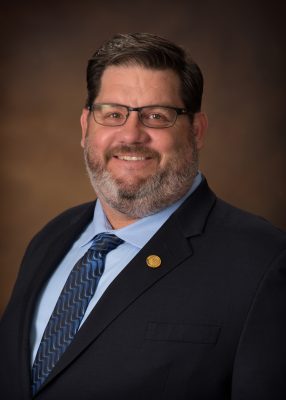
Scott Arceneaux, LAT, ATC
Director of Sports Medicine, St. Amant High School
Scott is a highly decorated Secondary School Athletic Trainer and the longtime Athletic Trainer at St. Amant High School. He lobbied the Louisiana Athletic Trainer Association for a secondary school committee in 1997. It became the catalyst for improving the secondary school setting. That committee is credited with giving the start to the Safe sports school award and the ATLAS project. That committee in 2002 , also worked with the Board of elementary and secondary schools to implement the Athletic trainer as a career and technical instructor . Opening the door to a huge influx of secondary schools to employ Athletic Trainers. He served as the Athletic Trainer coordinator from 1996 -2002 for the LHSAA All star games. In 2011 and 2012 he was chosen to be the Head Athletic Trainer for Team Louisiana football team in the Bayou bowl. He served as an original member of the LHSAA first Sports medicine advisory committee. For those efforts working with both the coaches association and high school sports association ,he was recognized by LHSCA for his distinguished service in 2012. He worked with his school district to expand Athletic trainers in his district and improve pay . His district went from 2 athletic trainers to 14 . Those efforts also garnered them more pay for the care they provided. His school became nationally recognized by the NATA three times as a Safe Sports School. (2013 -16, 2016-19, 2019-22). In 2013, he was selected as the SEATA High School Athletic Trainer of the Year. He has served as a longtime member of the LATA secondary school committee. In 2016 he was elected to be the LATA president thru 2018 .He continues to serve on the executive committee as past president, president- elect and will serve as president 2022-24. In 2018, he garnered the prestigious NATA service award for his work for the profession and his involvement in important sports safety legislation in the state. He has worked on legislation making it a requirement to have AEDs on all school campuses. He was part of legislation that recognized best practices for serious sports injury. In 2017, was invited to help move the needle to improve sports safety policy in Louisiana . That movement became TUFSS. In 2020 Louisiana signed into law ACT 259 that opened the door for the Board of elementary and secondary education to implement best practices for EAP’s, WBGT, Cold water immersion, Heat acclimatization and coaches education. Through the efforts of the Louisiana TUFSS group they moved Louisiana from 42 to 9th in sports policy. In 2020, he was awarded the highest honor by the Louisiana Athletic Trainer Association, being inducted to their Hall of Fame. The NATA recognized him in 2021 for 25 years of service.

Lawrence Armstrong, PhD
Professor Emeritis, Department of Kinesiology, University of Connecticut
Joint appointments in the Departments of Nutritional Sciences and Physiology & Neurobiology, University of Connecticut
Past President, American College of Sports Medicine, 2015-2016
Lawrence Armstrong was a member of the Human Performance Laboratory, University of Connecticut for 28 years. He presently serves as a private consultant with Hydration & Nutrition, LLC in Newport News, VA. His research specialties include human temperature regulation, heat acclimatization, fluid replacement, nutritional supplements, and sport drinks as they apply to athletes, laborers and military personnel. His field studies have focused on fluid-electrolyte balance in tennis players and endurance cyclists, heat exhaustion in military units, heat stress monitors, and cooling of heat-stroke patients after a summer road race.
He authored Performing in Extreme Environments (Human Kinetics, 2000), edited Exertional Heat Illnesses (Human Kinetics, 2003), edited ACSM’s Research Methods (LLW, 2015), and has co-authored over 230 peer-reviewed scientific publications. In 2007, Professor Armstrong chaired the current American College of Sports Medicine position stand entitled, Exertional Heat Illnesses During Training & Competition.
Professor Armstrong earned his doctorate in human bioenergetics at Ball State University’s Human Performance Laboratory in 1983.
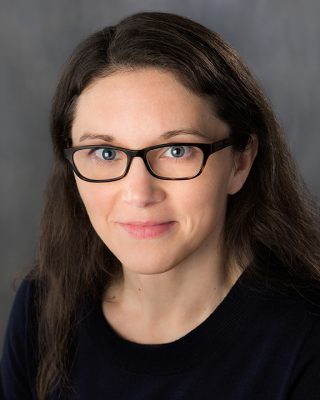
Lindsay Baker, PhD, FACSM
Director, Gatorade Sports Science Institute, Life Sciences, PEPSICO R&D
Lindsay Baker, PhD is the Director of the Gatorade Sports Science Institute’s (GSSI) Clinical Research Headquarters in Valhalla, NY, where she is responsible for research on hydration and nutrition. Since joining GSSI in 2007, Dr. Baker has specialized in fluid replacement beverages for athletes and studies the effects of hydration on thermoregulation, sport/exercise performance, and cognitive function. Another one of her research areas of interest includes techniques for assessing sweat composition and hydration in athletes. Dr. Baker became a Fellow of the American College of Sports Medicine in 2017. In 2018 Dr. Baker was selected into the PepsiCo R&D Research Fellows Program.
Dr. Baker has authored over 50 publications in sports hydration and nutrition, including peer-reviewed manuscripts and invited reviews and book chapters. Notable publications include a 2014 invited review paper in Comprehensive Physiology titled “Optimal Composition of Fluid-Replacement Beverages”, a chapter in the 2016 textbook “Fluid Balance, Hydration and Athletic Performance”, and several invited review papers on the topics of the Physiology of Sweat Gland Function and Sweat Testing Best Practices.
In 2002, Dr. Baker received her Bachelor of Science degree in Biology from the University of Pittsburgh at Johnstown, where she competed on the basketball, track, and cross-country teams. She graduated from Penn State University in 2008 with a doctorate in Kinesiology. While at Penn State, she conducted hydration and thermoregulation research at Noll Laboratory under the mentorship of Dr. W. Larry Kenney.
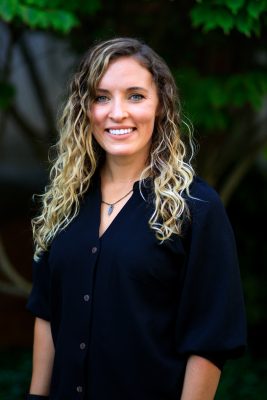 Courteney Benjamin, PhD, CSCS
Courteney Benjamin, PhD, CSCS
Assistant Professor, Stamford University
Courteney L. Benjamin is an assistant professor at Stamford University. She completed her PhD in May 2020 at the University of Connecticut, where she worked as the Director of Communication and Director of Athlete Performance and Safety at the Korey Stringer Institute. She has won NCAA soccer national championships as a player at University of West Florida (’12 – Division II) while earning her bachelor’s degree in exercise science and as a strength and conditioning coach at Florida State University (’14 – Division I) while earning a master’s degree in sports science. She is also the Head of Product for Sum Hydration.
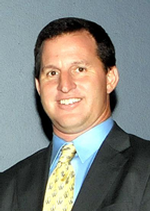
Mike Carroll, MEd, ATC, LAT
Head Athletic Trainer and Assistant Athletic Director for Graham High School
Mike Carroll is the head athletic trainer and assistant athletic director for Graham High School in Graham, Texas. He has been in that position since 2017. He entered the athletic training profession in 1992 and has spent a majority of his professional career in the secondary school setting.
Mike has a long history of serving in leadership positions in athletic training organizations. He has served on local, state, and district boards of directors and is a past president of the Southwest Athletic Trainers Association (SWATA). He has also served on many National Athletic Trainers Association (NATA) committees and task forces. In 2009 he was a member of the Pre-Season Heat Acclimatization Guidelines for Secondary School Athletics Task Force. He is currently the liaison from the Texas State Athletic Trainers Association to the University Interscholastic League (UIL) which is the state activities association for interscholastic athletics in the state of Texas. In the fall of 2011 he spearheaded a successful effort to have the UIL adopt pre-season practice guidelines similar to those that the NATA pre-season practice task force created. Currently he is an Athletic Trainer Director on the Board of Certification (the credentialing arm of the athletic training profession).
Carroll has received the NATA Athletic Trainer Service Award as well as the NATA Most Distinguished Award. He was selected to become a member of the SWATA Hall of Fame in 2016. He has also received the Bobby Gunn Unsung Hero Award, the Eddie Wojecki, and Most Distinguished Award from SWATA. He has served as an athletic trainer for the Texas High School Coaches Association all-star basketball game and also the all-star football game and frequently serves as a test examiner for the Texas state athletic training licensure exam. In 2012 he received the KSI Lifesaver Service Award.
Mike Carroll earned his bachelor’s degree in Kinesiology from Texas A&M University. He received his master’s degree in Athletic Training from the University of Virginia. His wife DeNae is a realtor and they have two children. His son Nolan attends the University of Arkansas and a daughter DeLaney is a student at Graham High School. His family has hosted seven foreign exchange students from five different countries throughout the years.
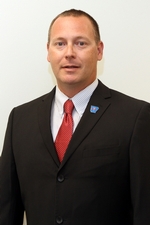
Jason Cates, ATC, LAT
Head Athletic Trainer, Cabot Public Schools
Jason Cates has been the head athletic trainer at Cabot Public Schools in Cabot, Arkansas since July, 2011. He has been very active in athletic health care for secondary schools at the state, district, and national levels since 1996. Jason has served on several committees on all three levels and is the current Past-President of the Arkansas Athletic Trainers’ Association. He serves on The Arkansas Activities Association Sports Medicine Advisory Committee, which adopted pre-season acclimatization and practice guidelines in accordance with the Korey Stringer Institute in 2012.
Jason, along with other Arkansas athletic trainers and key “stakeholders,” worked with a Legislative Task force to study athletic health care concerns in the state of Arkansas’ secondary schools. The Legislative Task Force was successful in passing a comprehensive Athletic Health Care Bill (H.B. 1214) in 2011 which addresses Exertional Heat Illness, Athletic Concussions, Communicable Diseases, and Emergency Action Plans for Athletics. Additionally, the bill mandates coach, parent, and athlete education on each of these issues.
Jason was recognized as the Arkansas Athletic Trainer of the Year in 2008 and received the NATA Athletic Trainer Service Award in 2012. Jason received his Bachelor of Science degree in Kinesiology with emphasis in Athletic Training from Arkansas State University.
 Cindy J. Chang, MD
Cindy J. Chang, MD
Clinical Professor, Primary Care Sports Medicine, Departments of Orthopaedics and Family & Community Medicine, University of California, San Francisco
Dr. Chang specializes in the sports medicine care of children and adults, preventing, diagnosing, and treating injuries and illnesses related to exercise and sports participation.
She serves as chair of the California Interscholastic Federation’s Sports Medicine Advisory Committee, and is also on the Sports Medicine Advisory Committee for the National Federation of State High School Associations (NFHS). She is a founder and co-chair of the California Concussion Coalition, and a board member of Racing Hearts, a non-profit that increases awareness of and improves access to AEDs in communities. Chang was an elected four-year member of the Board of Directors for the American Medical Society for Sports Medicine (AMSSM), one the largest organizations of primary care sports medicine physicians in the world. She later served as its President in 2011-2012. She is also a fellow of the American College of Sports Medicine (ACSM).
Chang has worked at the U.S. Olympic Training Center in Colorado Springs and was part of the USA medical team for the Winter Paralympic Games in Nagano, Japan, in 1998 and in Salt Lake City in 2002. She served as Chief Medical Officer for the USA delegation at the 2007 Parapan Am Games in Rio de Janeiro, the 2008 Summer Paralympic Games in Beijing, and most recently the 2012 Olympic Games in London.
She was the 2003 recipient of the AMSSM Founders Award, given to a sports medicine physician who demonstrates outstanding professional achievement and service to the community. She was also selected to receive the 2013 Dr. Ernst Jokl Sports Medicine Award, given annually to an individual for his/her contributions to the growth and development of sport medicine through practice and/or scholarly activity. Past award recipients have included Sir Roger Bannister, Dr. Jimmy Andrews, and Dr. Eric Heiden. Most recently, Chang has been honored with the National Athletic Trainers’ Association Jack Weakley Award of Distinction for 2016.
Chang attended The Ohio State University for her undergraduate and medical school education, and then completed her residency in Family Medicine at UCLA before returning to OSU for her fellowship in Sports Medicine. She was on faculty at OSU in the Department of Family Medicine, serving as Assistant Residency Director and Assistant Team Physician for the OSU Buckeyes until moving back to California to serve as the Head Team Physician for Cal’s 27 athletic teams from 1995 to 2008.
Chang continues her role at Cal as a team physician, volunteers as the team physician at Berkeley High School, and frequently speaks to community groups, schools, club teams, and the media on a wide range of topics affecting the health and safety of our young athletes.
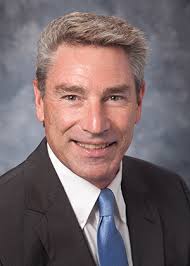
Bud Cooper, EdD, ATC, CSCS
Clinical Professor and Clinical Education Coordinator, Department of Kinesiology, University of Georgia
Bud is a Clinical Professor in the Kinesiology Department at The University of Georgia where he is the Clinical Education Coordinator for Athletic Training. Bud is also the Program Director for the master’s degree in Strength, Conditioning and Fitness. Bud’s research interest is in Exertional Heat Illness (EHI) where he has received grant funding from the NCAA, NATAREF, The National Federation of High Schools and the Georgia High School Association. Much of his work has centered on the effects of extreme environmental heat on football participants and as a result of his investigations, practice policy procedures have been modified and have had a significant impact on EHI rates.
Cooper also served as Chair for the “Exertional Heat Stroke Work Group (Washington DC) which is dedicated to raise awareness of exertional heat stroke. Cooper is a past president of the Georgia Athletic Trainers Association and currently is a committee member on the Georgia High School Association Sports Medicine Advisory Council. Cooper has lectured both nationally and internationally on the topic of EHI and has numerous publications on this topic. Cooper also sponsors a study abroad experience to Taiwan where athletic training students from all over the U.S. have the opportunity to study Traditional Chinese Medicine.
Cooper received his BS degree from the University of Pittsburgh where he was an all-conference sprinter on the track team, received an M.Ed. from the University of Houston and an Ed.D. from the University of Georgia with a focus on Epidemiology and Measurement.
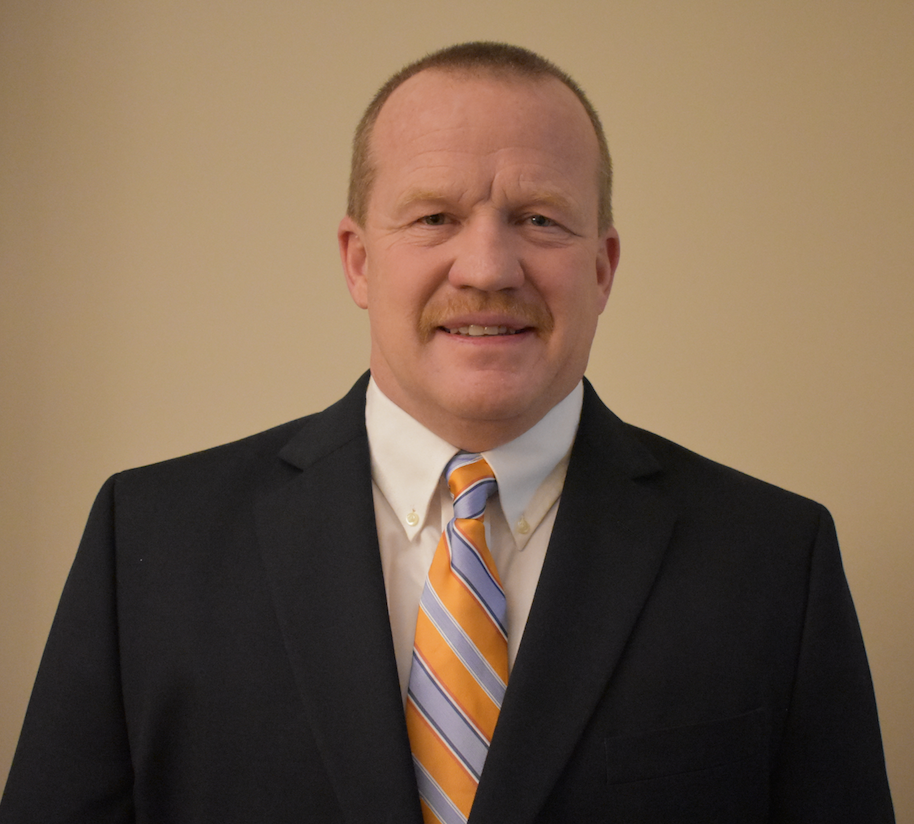
Larry Cooper, MS, LAT, ATC
Athletic Trainer, Penn-Trafford High School-Retired
Larry Cooper is a recently retired Teacher and Licensed Athletic Trainer. He spent the majority of his time at Penn-Trafford High School in Harrison City, Pennsylvania.
Larry previously served as the Chair of the NATA SSATC as well as District 2 Representative. Mr. Cooper has also served as a member of the National Federation of State High School Associations (NFHS) Sports Medicine Advisory Committee. In addition, he has held numerous positions within the Pennsylvania Athletic Trainers Society (PATS) including being a member of the Board of Directors, Secondary School Committee Chair, Parliamentarian and others. Larry is a founding member of the Western Pennsylvania Interscholastic Athletic Leagues (WPIAL) Sports Medicine Advisory Committee and continues to work as a Master Assessor for the Pennsylvania Interscholastic Athletic Associations (PIAA) Wrestling Weight Loss rule. He continues to be involved with a few projects, committees and task forces while serving as the NATA District 2 Secretary.
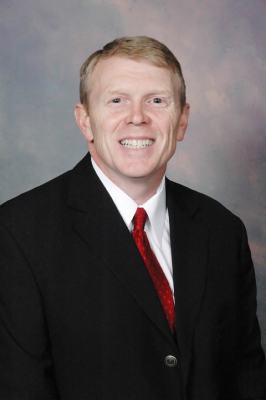 Ronald Courson, ATC, PT, SCS, NRAEMT, CSCS
Ronald Courson, ATC, PT, SCS, NRAEMT, CSCS
Executive Associate Athletic Director – Sports Medicine, University of Georgia Athletic Association
Ron Courson currently serves as Executive Associate Athletic Director – Sports Medicine with the University of Georgia Athletic Association. He joined the University of Georgia in May of 1995, after serving four years as Director of Rehabilitation at the University of Alabama. Prior to joining the Alabama staff in 1991, he served as an athletic trainer/physical therapist with Samford University in Birmingham, Alabama. He received his undergraduate degree in education/physical education from Samford University, where he played soccer and ran track and field. Ron performed two years of graduate work at the University of Tennessee-Chattanooga, and graduated with honors from the Medical College of Georgia in 1989 with a degree in physical therapy. He is a board certified clinical specialist in Sports Physical Therapy by the American Board of Physical Therapy Specialties. Ron is additionally a nationally registered advanced emergency medical technician as well as a certified strength and conditioning specialist by the National Strength and Conditioning Association.
Ron has been involved in many athletic training activities including work as an athletic trainer with the U.S. Olympic Team at the 1988 Olympic Games in Seoul, South Korea; 1990 Goodwill Games in Seattle; 1987 World University Games in Zagreb, Yugoslavia, 1987 Pan American Games in Indianapolis and the 1992 Olympic Games in Barcelona, Spain. He served as the chief athletic trainer for the 1996 U.S. Olympic Track and Field Trials as well as the chief athletic trainer for track and field for the 1996 Olympic Games.
Active in his profession, Ron has served as a member of the NCAA Competitive Safeguards and Medical Aspects of Sports committee. He is a past president of the Southeastern Conference Sports Medicine Committee as well as chairman of the College and University Athletic Trainers’ Committee of the National Athletic Trainers’ Association (NATA) and NATA liaison to the American Football Coaches Association. During his tenure at Alabama, he served as president of the Alabama Athletic Trainers’ Association and as chair of the Alabama Board of Athletic Trainers. He served as a member of the D1A Athletic Directors Task Force on Student-Athlete Development. He currently serves on the NFL Health and Safety Committee. Ron was inducted into the Southeast Athletic Trainers’ Hall of Fame in 2011 and the NATA Hall of Fame in 2013.
Ron is an adjunct instructor in the department of kinesiology at the University of Georgia, teaching in the athletic training education program. He serves as a clinical instructor teaching physical therapy students from schools throughout the country. He is active in sports medicine research and education, having authored a number of professional papers and text chapters. He has served as lead or co-author with the NATA on position papers for emergency preparation, exertional heat illness, management of sudden cardiac arrest, management of head and cervical spine injuries, MRSA, and medical time out. Ron co-chaired the national Spine Injuries in Sport Group, developing evidence-based medicine protocols for pre-hospital care of the spine injured athlete. He developed the nation’s first Athletic Medicine Review Board, which provides independent oversight for the athletic medicine program at Georgia. Ron presents frequently at regional and national sports medicine meetings. He has testified before Congress as well as the Knight Commission and served on the White House “Stop the Bleed” Hemorrhage Control National Education Initiative.
Ron is married to the former Eileen O’Connell of Waycross, Georgia. Eileen is a physical therapist who attended the University of Georgia and the Medical College of Georgia. Ron and Eileen have four children, John, Anna, Luke and Will.

David Csillan, MS, LAT, ATC
Athletic Trainer, The Hun School of Princeton
NATA, Hall of Fame 2019
David Csillan served as the athletic trainer for Ewing High School (Ewing, NJ) from 1991 – 2020. Following Ewing, he had a brief stint as the Manager of 5 physical therapy facilities for Princeton Orthopaedic Associates (Princeton, NJ). Presently, he is an athletic trainer at The Hun School of Princeton (Princeton, NJ). For over 30 years, Csillan has continued to provide his services to the medical staff for both the TCS New York City Marathon and Special Olympics New Jersey.
Csillan has held several elected and appointed positions with the National Athletic Trainers’ Association (NATA), Eastern Athletic Trainers’ Association (EATA) and the Athletic Trainers’ Society of New Jersey (ATSNJ). Most notable, he was the NATA District Secretaries’/Treasurers’ Committee Chair, NATA District Two Secretary, ATSNJ President and ATSNJ Secondary Schools Committee Chair. Presently, he serves on the ATSNJ Governmental Affairs and Secondary Schools Committees. Also, he is a mentor for the ATSNJ Student Leadership Committee.
Along with Dr. Douglas Casa, Csillan co-chaired the Pre-Season Heat Acclimatization Guidelines for Secondary School Athletics Task Force, spearheaded by the NATA. He was a contributing author for the third edition of the National Federation of State High School Association’s Sports Medicine Handbook. Csillan continues to be a driving force for secondary school athletics’ health and safety policy changes in New Jersey. The culmination of his work came in 2020 when his collaboration with legislators resulted in New Jersey passing a Heat Participation Policy into law. This policy requires that all interscholastic practices and games conducted during times of heat and humidity follow New Jersey WBGT guidelines, including the availability of cold water immersion.
Csillan was past recipient of the KSI Lifesaving Award, NATA Distinguished Service Award, NATA District 2 Gatorade Secondary School Athletic Trainer of the Year and Old Dominion University College of Health Sciences Top 30 Distinguished Alumni. Over his career, Csillan was inducted into the following Halls of Fame: National Athletic Trainers’ Association, Athletic Trainers’ Society of New Jersey, New Jersey State Interscholastic Athletic Coaches’ Association and Ewing High School Athletics.
Csillan earned a bachelor’s degree in Health and Physical Education with an emphasis in Athletic Training from Trenton State College (now The College of New Jersey) in 1983 and his master’s degree in Athletic Training from Old Dominion University in 1985.

Ryan Curtis, PhD, ATC, CSCS
Athletic Performance Data Manager at San Antonio Spurs
Ryan Curtis is the Athletic Performance Data Manager at San Antonio Spurs. Ryan has over 12 years of professional experience as a sports scientist, strength and conditioning coach and athletic trainer in military, collegiate and professional sports settings. He served in several positions at the Korey Stringer Institute (KSI), including the Assistant Director of Elite Athlete Health and Performance, Associate Director of Athlete Performance and Safety and Director of Athlete Performance and Safety. Prior to KSI, Ryan served special forces warfighters with the United States Marine Corps, developmental and professional athletes with the United States Tennis Association, and professional athletes on the ATP/WTA tennis tour. Dr. Curtis has authored over 15 peer-reviewed research publications and book chapters, presented feature lectures and research presentations at international conferences, and is an author of the book “Maximizing Performance and Safety in Elite Soccer Players”, which is scheduled to release in 2019. His professional and research interests are in optimizing athlete/human health and performance through integration of technology and analytics.
Dr. Curtis received his bachelor’s degree in Athletic Training from Culver-Stockton College in 2006, Master’s degree in exercise science from Kansas State University in 2009 and Doctoral degree in exercise science from the University of Connecticut in 2019.

Lindsay J. Distefano, PhD, ATC
Associate Vice President for Research Development
Associate Professor, University of Connecticut
Dr. Distefano’s research interests center around sport-related musculoskeletal injury prevention with a specific focus towards ACL injury prevention and injury prevention in a youth population. She is currently studying an injury prevention program in a military population, evaluating the development of risk factors for injury in children, and investigating new methods to translate injury prevention to the community. Past research experiences include studying the effects of injury prevention programs in youth athletes, evaluating the necessary components of injury prevention programs, and prospectively investigating risk factors for ACL injury.
Dr. Distefano received her Bachelor’s degree from Boston University and her Master’s and Doctorate degrees from the University of North Carolina.
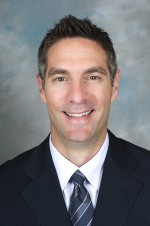 Jonathan A. Drezner, MD
Jonathan A. Drezner, MD
Associate Professor, Department of Family Medicine, University of Washington
Associate Director, Sports Medicine Fellowship, University of Washington
Team Physician, Seattle Seahawks & UW Huskies, University of Washington
Dr. Jonathan Drezner is a Professor in the Department of Family Medicine and Director of the Center for Sports Cardiology at the University of Washington (Seattle, WA). He is Team Physician for the Seattle Seahawks (NFL) as well as the University of Washington Huskies. Dr. Drezner is past-President of the American Medical Society for Sports Medicine (2012-13), Director of the National Registry for AED Use in Sports, and Senior Associate Editor for Sports Cardiology for the British Journal of Sports Medicine. His primary research focuses on the prevention of sudden cardiac death in athletes, cardiovascular screening and ECG interpretation in athletes, and emergency response planning for sudden cardiac arrest and the use of automated external defibrillators (AEDs) in the school and athletic settings.
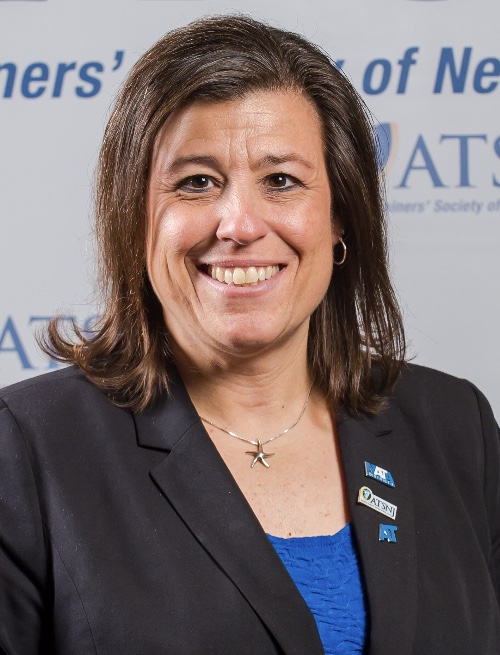
Christina M. Emrich, MS, LAT, ATC
Athletic Trainer and Assistant Athletic Director, Red Bank Regional High School
Christina Emrich has been the athletic trainer at Red Bank Regional High School in Little Silver, NJ since 1995, as well as the assistant athletic director since 2006. She entered the profession in 1992.
She has been very active on the state level as a member of the Athletic Trainer’s Society of New Jersey (ATSNJ) Public Relations, ATs Cares NJ and Secondary School committees. She previously served as the Chair of the Secondary School Committee, and has held several positions on the Executive Council. Christina is currently the Past President of the Athletic Trainers’ Society of New Jersey and a member of the New Jersey State Interscholastic Athletic Association Sports Medicine Advisory Committee. During her tenure as President, Christina participated in the Collaborative Solutions for Safety in NJ Sports together with KSI and the New Jersey State Interscholastic Athletic Association developing strategies for policy implementation for secondary school athletics.
In 2014, Christina was chosen as a Medical Manager for the USA Special Olympics hosted by New Jersey and continues to provide medical care coverage for the New Jersey Special Olympics and the New York City Marathon, as well as providing coverage for various state soccer tournaments.
Christina has presented at the Mid-Atlantic Region of the American College of Sports Medicine and the Adam Taliaferro Foundation Symposium. In 2009 She received the inaugural NATA/Secondary School Gatorade Award. In 2011 was inducted into the New Jersey State Interscholastic Athletic Association New Jersey Scholastic Coaches Hall of Fame and the Red Bank Regional High School Distinguished Alumni Hall of Fame. In 2014 she received the ATSNJ Distinguished Service Award and in 2018 the NATA Athletic Trainer Service Award.
Christina Emrich received her Bachelor’s degree in Physical Education/Health with a concentration in Athletic Training from Montclair State University, Upper Montclair, NJ and her Master’s degree from Kean University, Union, NJ.
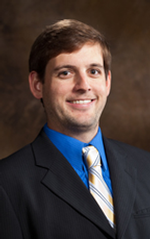
Matthew Ganio, PhD, FACSM
Associate Professor, University of Arkansas
Director, Human Performance Laboratory, University of Arkansas
Chief Statistical Advisor, Korey Stringer Institute
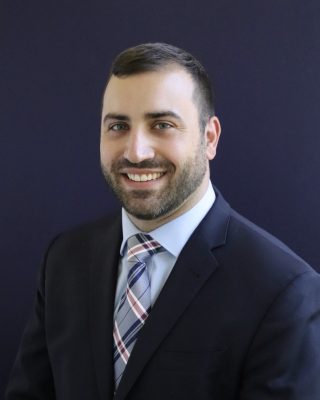 Neal Glaviano
Neal Glaviano
Assistant Professor, Athletic Training Clinical Coordinator
Department of Kinesiology, University of Connecticut
Dr. Glaviano is currently an Assistant Professor in the Department of Kinesiology and serves as the Clinical Education Coordinator and core faculty member of the Masters in Athletic Training Program at the University of Connecticut. Dr. Glaviano completed his undergraduate degree in Athletic Training from the University of Connecticut in 2007. He attended the University of Virginia for graduate school, earning a M.Ed. in Athletic Training in 2008 and a Ph.D. in Sports Medicine in 2016. Dr. Glaviano worked clinically in a private physical therapy clinic and outreach to high schools in both Connecticut and Virginia. His research interests include the evaluation and treatment of patellofemoral pain, optimizing lumbopelvic-hip complex function and the use of electrical stimulation to optimize muscle function following injury.
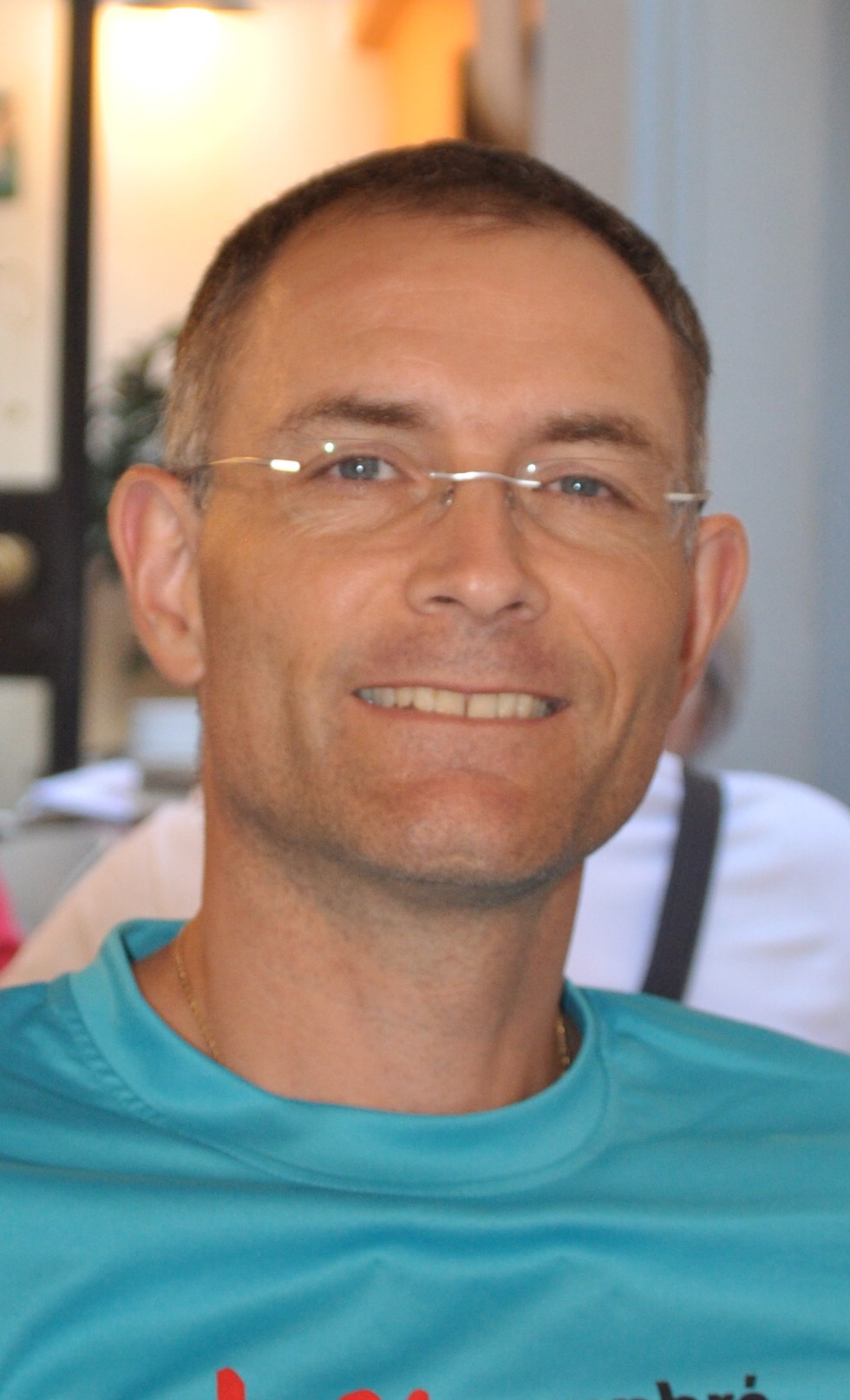
Eric D.B. Goulet, PhD
Associate Professor, Université de Sherbrooke
Performance, Hydration and Thermoregulation Laboratory
Director, PhD Program
Eric D.B. Goulet is an associate professor of exercise physiology at the Université de Sherbrooke, Canada, where he is also head of the performance, hydration and thermoregulation laboratory. His research interests include 1) the impact of dehydration, heat stress, ad libitum drinking and hyperhydration on physical performance, water balance and physiological functions; 2) the validation of devices or techniques aimed at measuring performance, core temperature or sodium concentration in sweat and; 3) the conduct of systematic reviews for improving our understanding of the impact of body water changes on physical performance.
Dr. Goulet earned his BSc in physical education, MSc in exercise physiology and PhD in physiology from the Université de Sherbrooke. He then completed a 2-year postdoctoral fellowship in physiology at the McGill Nutrition and Food Science Center, McGill University, Canada.

Andrew Grundstein, PhD
Professor, University of Georgia
Andrew Grundstein is a professor of Geography and member of the Atmospheric Sciences program at the University of Georgia. His research focuses on the interactions between weather, climate and human health. He has particular interests related to monitoring heat exposure, impacts of heat on health, and in developing heat safety polices. Dr. Grundstein has over 90 published articles and book chapters, and his research on heat and health has been supported by grants from agencies such as the National Science Foundation, the National Institutes of Health and the Centers for Disease Control. Dr. Grundstein received his bachelor’s degree from the University of California at Los Angeles, and his master’s and doctorate degrees from the University of Delaware.
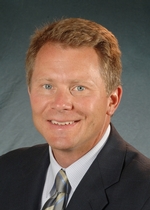
Kevin M. Guskiewicz, PhD, ATC
Chancellor, University of North Carolina
Co-Director, Matthew Gfeller Sport Related TBI Research Center
Director, Center for the Study of Retired Athletes
Kevin Guskiewicz is the Kenan Distinguished Professor, Co-Director of the Matthew Gfeller Sport-Related TBI Research Center, and Director of the Center for the Study of Retired Athletes at The University of North Carolina at Chapel Hill. He is a graduate of the University of Virginia (PhD, 1995); University of Pittsburgh (MS, 1992); and West Chester University (BS, 1989). Over the past 18 years, his clinical research program has investigated the effect of sport-related concussion on balance and cognitive function, the biomechanics of sport concussion, and the long-term neurological effects of concussion in professional football players. Dr. Guskiewicz has received 24 funded research grants, and published over 130 journal articles and 8 textbook chapters on sport concussion. Additionally, he has presented over 250 national and international lectures on this topic. He teaches courses in sports medicine, anatomy, and research methods at UNC, and has been awarded fellowship in the American College of Sports Medicine, National Academy of Kinesiology, and the National Athletic Trainers’ Association. He serves on NCAA’s Concussion Committee, NFL’s Head, Neck, and Spine Committee, and NFLPA’s Mackey-White Committee. In 2011, Kevin was awarded a prestigious MacArthur Fellowship.
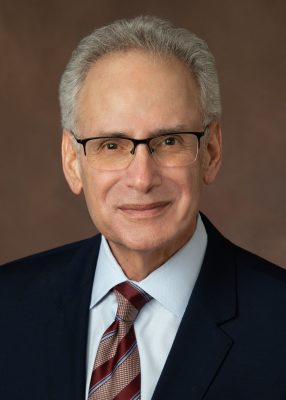
Stanley A. Herring, MD
Clinical Professor, Department of Rehabilitation Medicine, Orthopaedics, and Sports Medicine and Neurological Surgery, University of Washington
Co-founder and Senior Medical Advisor, The Sports Institute at UW Medicine
C0-Medical Director, University of Washington Medicine Sports Concussion Program
Zackery Lystedt Sports Concussion Endowed Chair
Team Physician, Seattle Seahawks and Seattle Mariners
Stanley A. Herring, MD, is a board-certified physical medicine and rehabilitation physician who has been in practice over 38 years. He is a clinical professor in the Departments of Rehabilitation Medicine, Orthopaedics and Sports Medicine, and Neurological Surgery at the University of Washington. Dr. Herring holds the Zackery Lystedt Sports Concussion Endowed Chair. Dr. Herring is a co-founder of the Sports Institute at UW Medicine where he serves as senior medical advisor, and he also serves as co-medical director of the UW Medicine Sports Concussion Program. He is also co-medical director of UW Medicine Orthopedic Health and Sports Medicine, and he is one of the team physicians for the Seattle Seahawks and Seattle Mariners. Dr. Herring’s practice focuses on the diagnosis and management of neurological and musculoskeletal injuries, particularly focusing on spinal disorders in active people and athletes as well as sports-related concussions. Dr. Herring has held many national leadership positions, including president of the North American Spine Society, member of the Board of Trustees of the American College of Sports Medicine, and board member of the Foundation for Physical Medicine & Rehabilitation. He is also a founding member of the American Medical Society for Sports Medicine and the Physiatric Association of Sports, Spine and Occupational Rehabilitation. Dr. Herring is on the editorial boards of professional journals and has been an editor of nine textbooks as well as an author of 97 peer-reviewed journal articles and 55 textbook chapters. He was a major contributor to the successful passage of the Zackery Lystedt Law in Washington State, and his continued work helped pass similar youth concussion legislation in all 50 states and the District of Columbia. In addition, Dr. Herring is a frequent national and international speaker on a variety of physiatric and sports medicine topics.

Yuri Hosokawa, PhD, ATC
Assistant Professor, Sport Sciences, Waseda University
Yuri Hosokawa is currently an Assistant Professor at the Waseda University in Saitama, Japan. Her research interests include prevention and education of sudden death in sport, establishing best practices in road race medicine, development of regional-specific heat guidelines and exploring the roles of genetics in the susceptibility of exertional heat stroke. She is also partaking in research projects in the field of biometeorology to promote interdisciplinary research across physiologist, climatologist, and public health researchers.
Ms. Hosokawa has lead projects to help advance the Athletic Training profession in the U.S. and Japan, including assessment of athletic training service return on investment through secondary school insurance cost, National Football League Foundation athletic trainer grant program, and Journal of Athletic Training translation project lead by the Japan Athletic Trainers’ Organization. She is currently a member of the International Committee of the National Athletic Trainers’ Association. She continues to work internationally, serving as a science advisor for Sport Safety Japan, NPO, and a member of the International Institute for Race Medicine Ambassador Program Committee.
Ms. Hosokawa received her bachelor’s degree in Sport Sciences from the Waseda University in 2011, her master’s degree in Athletic Training from the University of Arkansas in 2013, and her doctoral degree from the University of Connecticut in 2016. She then completed a postdoctoral fellowship at the Korey Stringer Institute.
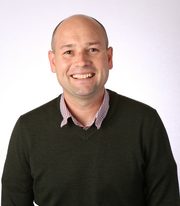
Ollie Jay, PhD, FACSM
Director- Thermal Ergonomics Laboratory, Faculty of Health Sciences and Charles Perkins Centre, University of Sydney
Ollie Jay is an Associate Professor in Thermoregulatory Physiology in the Faculty of Health Sciences at The University of Sydney in Australia. He is Director of the Thermal Ergonomics Laboratory and Lead Researcher of the Charles Perkins Centre (CPC) Research Node on Climate Adaptation & Health. His research activities primarily focus on developing a better understanding of the physiological and physical factors that determine human heat strain and the associated risk of heat-related health problems during work and/or physical activity & sport, as well as among vulnerable people during heat waves.
To date, Ollie has a total of 110+ peer-reviewed research publications (75+ as senior author) and has received funding from organisations such as the National Health & Medical Research Council (NHMRC), MS Research Australia, and the NSW Office of Environment & Heritage. He has also been responsible for the development of new extreme heat policies for the Australian Tennis Open (starting in 2019), Cricket Australia, the National Rugby League (NRL), and the 2017 Rugby League World Cup, which was hosted in Australia, New Zealand, and Papua New Guinea.
Ollie is also an Associate Editor for Journal Science and Medicine in Sport, and the journal Temperature. He also serves as an Editorial Board member for the Journal of Applied Physiology, and Medicine and Science in Sports and Exercise (MSSE). In 2017, he was the recipient of a 2-year University of Sydney Research Accelerator (SOAR) Fellowship, and the University of Sydney Vice-Chancellor’s Award for Excellence: Outstanding Research and Teaching.
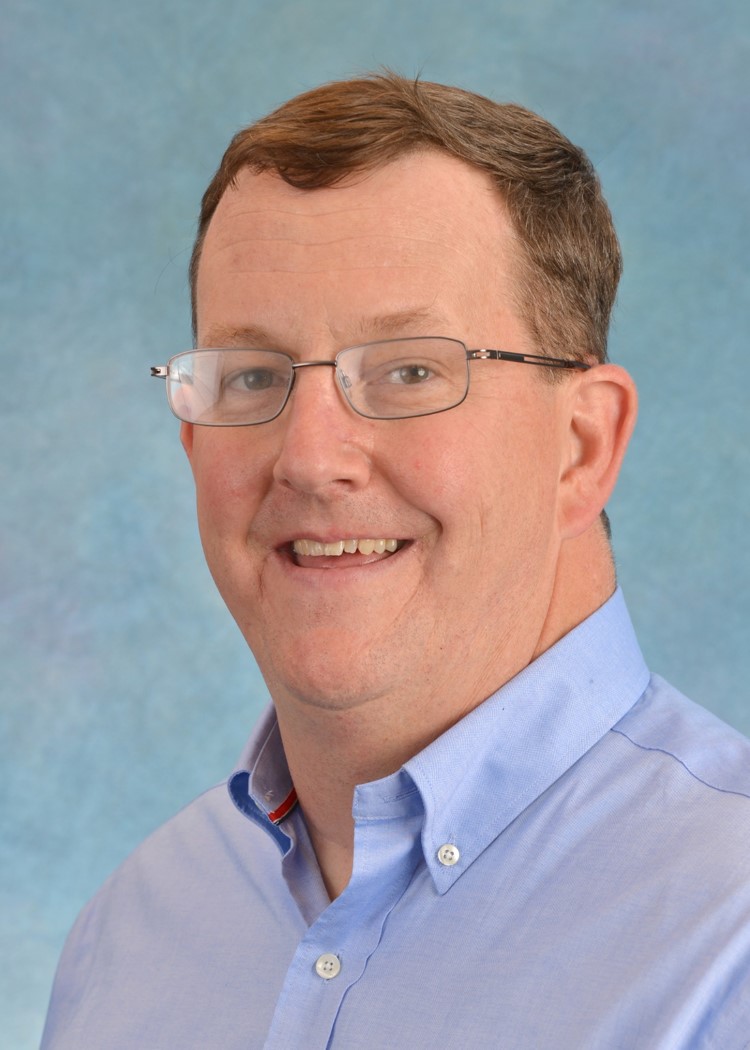
Shawn F. Kane M.D, FAAFP, FACSM
Associate Professor, Department of Family Medicine, University of North Carolina- Chapel Hill
Shawn is a Family Physician and a Primary Care Sports Medicine Physician who served in the U.S. Army for 27 years. While in the Army he spent over 17 years serving as a Physician-Leader in numerous units within the US Army Special Operations Command. Prior to retirement, he served as the Commander of the Special Warfare Medical Group (Airborne) and the Dean of the Joint Special Operations Medical Training Center where he oversaw the initial and refresher training for all Special Operations Medics in the United States Special Operations Command.
Currently, he is an Associate Professor in the Department of Family Medicine at the UNC Chapel Hill School of Medicine and is an Adjunct Assistant Professor in the Department of Exercise and Sports Science at UNC Chapel Hill.
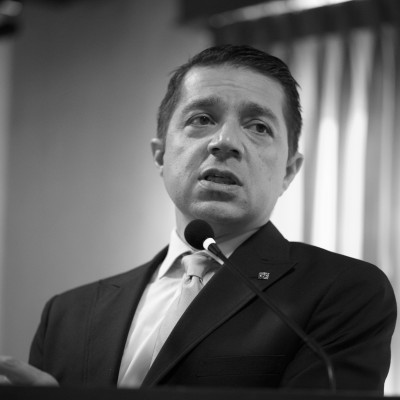 Stavros A. Kavouras, PhD, FACSM, FECSS
Stavros A. Kavouras, PhD, FACSM, FECSS
Associate Dean and Professor of Nutrition, Arizona State University
Dr. Stavros Kavouras is Assistant Dean and Professor of Nutrition at Arizona State University. He is also the Director of Hydration Science Lab studying the mechanisms by which water intake impacts health and performance. His current research is focusing on the effect of water intake on glucose regulation and its implication on children’s hydration and obesity. Dr. Kavouras is the author of more than 150 peer review articles, 8,500 citations (h-index 49), and he has given lectures in 29 countries. He is a section Editor of the European Journal of Nutrition, Associate Editor of Nutrients, Behavioral Medicine, and Frontiers in Nutrition. Dr Kavouras is a Fellow of the American College of Sports Medicine & the European College of Sports Science as well as member of the American Society of Nutrition, the Obesity Society, and the American Physiological Society.

Zachary Kerr, PhD, MPH
Assistant Professor, University of North Carolina
Dr. Kerr is an Assistant Professor in the Department of Exercise and Sport Science at the University of North Carolina, and serves as Core Faculty with the Center for the Study of Retired Athletes, the Matthew Gfeller Traumatic Brain Injury Center, and the UNC Injury Prevention Research Center. Dr. Kerr completed his undergraduate degree in Communication and Spanish at the University of Washington (Seattle, WA) in 2004. He completed his graduate work at The Ohio State University (Columbus, OH), earning two Master’s degrees in Journalism and Communication in 2006, and Epidemiology in 2010. At the University of North Carolina at Chapel Hill, Dr. Kerr completed his doctoral work in Epidemiology in 2014.
He previously served as the Director of the National Collegiate Athletic Association Injury Surveillance Program. His research examines the strengths and limitations of sports injury surveillance to discuss strategies to estimate injury incidence. He also evaluates injury prevention strategies related to traumatic sport-related injuries such as concussions and heat stroke. Through his collaborations with numerous injury prevention, athletic training, and sports medicine experts, he has published over 75 research articles related to injury surveillance and traumatic sport-related injuries such as concussions and heat stroke.
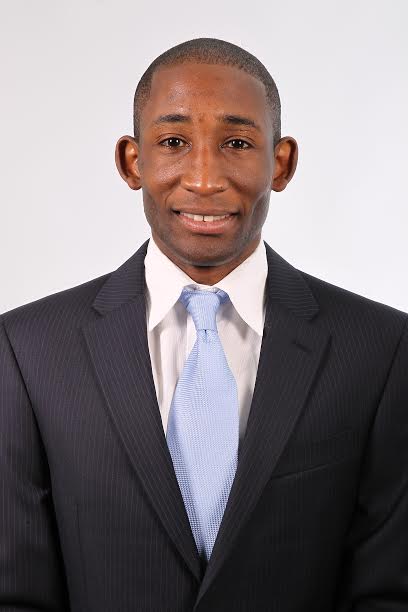
Kevin King, ATC, LAT
Assistant Athletic Trainer, Carolina Panthers
Kevin King is in his 11th season with the Panthers and fourth as head athletic trainer in 2023.

Dr. Kristen Kucera
Associate Professor, Department of Exercise and Sport Science, University of North Carolina at Chapel Hill
Director of the National Center for Catastrophic Sport Injury Research
Dr. Kristen Kucera is an associate professor in the Department of Exercise and Sport Science at The University of North Carolina at Chapel Hill and the Director of the National Center for Catastrophic Sport Injury Research. She teaches the undergraduate Research Methods in Exercise and Sport Science courses and is chair of the EXSS Diversity, Equity, and Inclusion Committee. Dr. Kucera is also a core faculty at the UNC Injury Prevention Research Center and in the Human Movement Science Curriculum. She joined the faculty in 2013 after serving as an assistant professor in the Division of Occupational and Environmental Medicine at Duke University Medical Center. Dr. Kucera received her undergraduate degree (BS, 1994) in athletic training at Linfield College (McMinnville, OR) and completed her master’s (MSPH, 2002) and doctoral (PhD, 2006) degrees in the Department of Epidemiology, Gillings School of Global Public Health at The University of North Carolina at Chapel Hill. An epidemiologist and certified athletic trainer, Kristen’s research interests include sport and occupational injury epidemiology with an emphasis in conducting and improving surveillance, risk factor identification and exposure assessment, and prevention. Her research projects have addressed occupational-related and athletic-related injuries and illnesses in athletes of all ages, commercial fishermen, carpenters, certified athletic trainers, military cadets, firefighters, andnuniversity hospital employees. Community engagement surrounding implementation of best practices for prevention and improved reporting of catastrophic sports-related injuries and medical conditions are areas of current interest. Dr. Kucera’s work has been funded by The National Institute of Occupational Safety and Health and the National Operating committee on Standards for Athletic Equipment. As NCCSIR Director, Dr. Kucera works closely with the Korey Stringer Institute through the Consortium for Catastrophic Injury Monitoring in Sport (nccsir.unc.edu/about-2/consortia-and-partners). Together, they conduct surveillance and gather detailed information about catastrophic sport-related exertional/medical conditions among athletes in the United States. Results from this work are reported annually to sport and sport medicine organizations to help minimize the incidence and impacts of these conditions.

Elaine Choung-Hee Lee, PhD
Assistant Professor, University of Connecticut
Director, Human Performance Lab
Dr. Lee’s research aims are to elucidate genetic and molecular mechanisms of whole body and cellular stress (osmotic, heat, exercise, immune) adaptation in Caenorhabditiselegans and humans. She aims to work on projects that identify human biomarkers of stress exposure and adaptation, characterize genome-wide transcriptional responses to stress in humans and C. elegans, and identify mechanisms of osmosensing and adaptation in response to osmotic stress and infection. At UConn she is currently working on multiple projects that aim to characterize the intracellular and extracellular molecular chaperone response to multiple whole body stressors.
Dr. Lee received her Bachelor’s, Master’s and Doctorate degrees from the University of Connecticut.
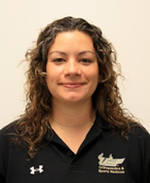
Rebecca Lopez, PhD, ATC, CSCS
Associate Professor, University of South Florida
Rebecca Lopez’s research interests include exertional heat stroke, cooling methods for hyperthermic athletes, ergogenic aids and thermoregulation, hydration and exercise performance, and exercise heat tolerance issues of American football players. Rebecca has extensive athletic training experience in the high school setting, having worked over eight years in Miami area high schools. She also has experience working mass medical events including the Boston Marathon, Marine Corps Marathon, and Falmouth Road Race. She has published or has in press more than 25 peer-reviewed publications related to heat and hydration issues of athletes.
Rebecca received her bachelor’s and master’s degrees in athletic training at Florida International University in 1998 and 2004, respectively. She graduated in 2010 from the University of Connecticut with her doctorate in exercise science.
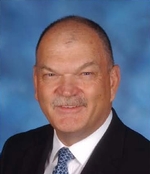
Thom A. Mayer, M.D., FACEP, FAAP
Medical Director, NFL Players Association
Dr. Thom Mayer is the Medical Director of the NFL Players Association, a position he assumed at the request of Gene Upshaw on the day Korey Stringer, a tackle for the Minnesota Vikings, passed away from heat stroke.. The NFLPA had never before had a Medical Director. Under the leadership of current NFLPA Executive Director DeMaurice Smith, Dr. Mayer and his team pioneered a new era in assuring that the health and safety of NFL athletes are protected. Heat illness, traumatic brain injuries, cardiovascular disease, musculoskeletal injuries, and strength training are all now subject to strict guidelines. In this critical role for the NFLPA, he has become one of the most trusted and widely-respected physicians in sports medicine. He is also recognized as an expert in emergency medicine, pediatric emergency medicine, trauma and healthcare leadership. With regard to sports medicine, leadership development, service excellence and patient flow, he is the most respected and widely known emergency physician in the nation.
Dr. Mayer has published over 90 articles, 100 book chapters, and has edited fifteen textbooks. He has spoken at over 200 national and international conferences on sports medicine and emergency medicine.
On September 11, 2001 Dr. Mayer served as one of the Command Physicians at the Pentagon Rescue Operation, coordinating medical assets at the site. The BestPractices physicians at Inova Fairfax Hospital were the first to successfully diagnose and treat inhalational anthrax victims during the fall 2001 anthrax crises, and Dr. Mayer has served the Department of Defense on Defense Science Board Task Forces on Bioterrorism, Homeland Security, and consequences of Weapons of Mass Destruction. His expertise and insights in crisis management are thus informed by hard-won experience.
Dr. Mayer’s academic appointments are as Clinical Professor of Emergency Medicine at the George Washington and Senior Lecturing Fellow, Duke University School of Medicine.

Brendon McDermott, PhD, ATC
Associate Professor, University of Arkansas
Brendon McDermott is an associate professor at the University of Arkansas. He is chair of the updated National Athletic Trainers Association (NATA) position statement on fluid replacement for athletes, to be released within the next year. Other research interests include exertional heat stroke treatment, return-to-activity following exertional heat stroke, hydration and exercise performance, thermal physiology, and ergogenic aides and exercise performance.
He received his bachelor’s degree in athletic training at Northeastern University in 2000, his master’s degree in kinesiology at Indiana University in 2001 and graduated from the Neag School of Education at the University of Connecticut in 2009 with his doctorate in exercise science.
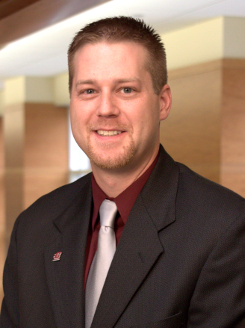
Kevin Miller, PhD, ATC
Professor, School of Rehabilitation and Medical Sciences, Central Michigan University
Kevin C. Miller is a Professor of Athletic Training in the School of Rehabilitation and Medical Sciences at Central Michigan University. His research interests involve the causes, treatments, and prevention of heat illness with a specific emphasis on exercise-associated muscle cramping. He has published over 30 peer-reviewed manuscripts in medical journals and presented over 70 international, national, or regional presentations on topics related to heat illnesses. He co-authored the 2015 NATA Position Statement on Exertional Heat Illness as well as the Statement of the Third International Exercise-Associated Hyponatremia Consensus Development Conference. He is a member of the Journal of Athletic Training’s Editorial Board, co-Chair of the Michigan Athletic Trainers Society Planning Committee, and member of the NATAs International Committee.
Dr. Miller earned his BS in Human Biology with an emphasis in Exercise Physiology from the University of Wisconsin-Green Bay; a MS in Human Performance from the University of Wisconsin-La Crosse; and his PhD in Exercise Science with an emphasis in Physical Medicine and Rehabilitation from Brigham Young University.
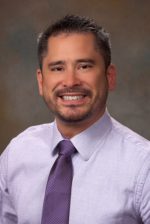
Jeremy Ng, MD, CAQSM
Health Sciences Assistant Clinical Professor
David Geffen School of Medicine at UCLA
Department of Family Medicine, Division Sports Medicine
Associate Lead Primary Care Team Physician, Los Angeles Dodgers
Jeremy Ng is a board certified Emergency Medicine physician with a certificate of added qualification in Primary Care Sports Medicine. His interests include performance medicine, elite-level performance coaching, concussion management, and travel medicine.
Dr. Ng graduated from Boston University School of Medicine, completed his emergency medicine residency at Albert Einstein Medical Center in Philadelphia, and his primary care sports medicine fellowship at the Combined University of Pennsylvania/Children’s Hospital of Philadelphia Program.
During his medical training, Dr. Ng was also coaching track and field at the NCAA Division II level as well as working with individual athletes from several different sports. He has his USA Track and Field Level II coaching certification in Jumps and is working towards his Level III coaching certification in Sprints/Hurdles. This passion fueled a unique training pathway that eventually included working as both a physician and performance coach with approximately 140 football players who were later selected in the NFL Draft as well as numerous Olympic track and field athletes.
During his residency and fellowship, Dr. Ng worked as a physician and sports performance coach for the NFL Combine Preparation Program at Bommarito Performance Systems in Florida. In addition to his role as a physician, Dr. Ng also helped design and lead speed and strength training sessions, created meal plans, performed video analysis, and developed rehabilitation plans.
After his fellowship, Dr. Ng moved to Florida to work with IMG Academy, where he served as a primary care sports medicine physician for the students, US Soccer U-17 Men’s National Team Residency Program, and the Elite/Professional athletes that train there. He was the Medical Director for the IMG Academy NFL Combine Preparation Program from 2013-2016 while also assisting as a sports performance coach. In addition, he has designed county-wide concussion protocols and numerous institution-wide concussion protocols for the surrounding community.
Dr. Ng developed the Lecture Series at IMG Academy for athletic trainers, physical therapists, EMS personnel, and school nurses to offer free continuing education units, encourage and promote evidence-based practice, and provide a meeting place and forum to discuss issues effecting the local sports medicine community. The Lecture Series focuses on the causes of sudden death, preparation for mass gatherings and optimizing sports performance.
Dr. Ng has provided medical coverage for professional, college and high school sports programs including the Philadelphia Eagles, Philadelphia Flyers, the University of Pennsylvania, and Rowan University. He travels extensively with the U.S. Soccer Under-17 Men’s National Team, has covered the NFL Combine for IMG athletes and has worked as a physician for the Penn Relays and Philadelphia Marathon.blank

Julie K. Nolan, PhD, ATC
Assistant Professor, Athletic Training Education Program, Sacred Heart University
Julie (DeMartini) Nolan is an assistant professor in the Athletic Training program at Sacred Heart University. Julie is a co-author on the recently updated National Athletic Trainers’ Association position statement on exertional heat illnesses, and has several other peer-reviewed publications related to her research interests involving thermoregulation and heat illness in athletes. In addition, she has nearly 10 years of experience working mass medical events including the Falmouth Road Race, Boston Marathon and Marine Corps Marathon.
Julie received her Bachelor’s degree in Athletic Training from Duquesne University in 2006, and her Master’s and Doctorate degrees in Exercise Science from the University of Connecticut in 2009 and 2013, respectively.
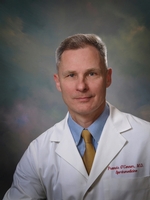
Francis O’Connor, MD, MPH
Professor, Military and Emergency Medicine, Uniformed Services University
Medical Director, Consortium on Health and Military Performance
US Army Liaison to the Korey Stringer Institute
Francis O’Connor has been a leader in sports medicine education and research for the military for more than 20 years. Dr. O’Connor has authored over 50+ articles in scientific journals and numerous book chapters, technical reports and health promotion resources for the military. Additionally, Dr. O’Connor is the editor of four texts on sports medicine including, the Textbook of Running Medicine and Sports Medicine for the Primary Care Physician, 3rd Edition.
He has served on the boards of several leading organizations in sports medicine including the American College of Sports Medicine (ACSM), the American Medical Society of Sports Medicine (AMSSM), and the American Medical Athletic Association (AMAA).
A Colonel in the United States Army, Dr. O’Connor is a graduate of the United States Military Academy at West Point; and prior to his recent posting at Uniformed Services University in the Department of Military Medicine, served one year as a Command Surgeon with Special Operations in the Middle East.
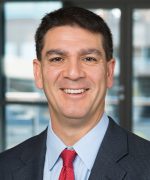
James Onate, PhD, ATC, FNATA
Associate Professor, Athletic Training Division
Director, OSU MOVES Research Laboratory
Co-Director, OSU Movement Analysis & Performance Lab (MAP)
The Ohio State University
Dr. James Onate brings considerable research, education, and clinical experience as an Associate Professor at The Ohio State University. He earned his PhD in Human Movement Science from the University of North Carolina at Chapel Hill in 2002 and has nearly two decades of experience working with various aspects of human performance groups. His background as an academic faculty leader has been the intersection of injury prevention to human performance optimization to enable individuals/teams to maximize their potential. Funding for his work totaling approximately $4 million has been provided through the National Institutes of Health, the Office of Naval Research, the United States Special Operations Command, and the Naval Special Warfare Development Group. Dr. Onate acts as a faculty lead of the OSU Human Performance Collaborative as a key component in building the bridges across academia, industry, and clinical models relative to human performance in the hopes of developing proactive integrative approaches for optimizing and sustaining human performance. Dr. Onate has worked with collegiate-level athletes, military special forces groups, elementary school aged children ranging across various topic areas consisting of sport related concussion, lower extremity musculoskeletal injuries, functional movement assessments, neuromechanical motor learning, high performance model development, and esports performance and wellness. His main focus lies in optimizing and sustaining human performance.
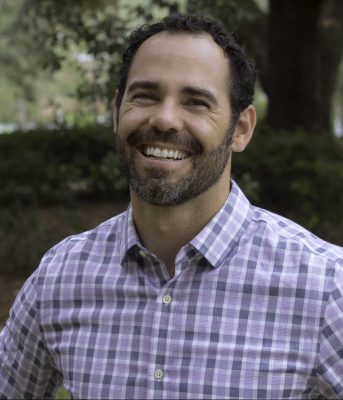
Michael Ormsbee, PhD, FACSM, FISSN, CSCS*D
Associate Professor, Department of Nutrition, Food and Exercise Sciences
Associate Director, Institute of Sports Science and Medicine
Florida State University
Michael J. Ormsbee is an Associate Professor in the Department of Nutrition, Food and Exercise Sciences and the Associate Director of the Institute of Sports Sciences and Medicine at Florida State University. He serves as an Honorary Research Fellow at the University of KwaZulu-Natal in Durban, South Africa and is a Fellow of the American College of Sports Medicine and the International Society of Sports Nutrition. His research expertise involves the interaction of exercise training, nutrition and supplementation to improve metabolism and achieve optimal body composition, human performance, and health with special emphasis on pre-sleep feeding. Dr. Ormsbee was awarded the Florida State University Teacher of the Year award (2014), Graduate Faculty Mentor Award (2018) and was named the Nutrition Researcher of the Year (2017) by the National Strength and Conditioning Association.
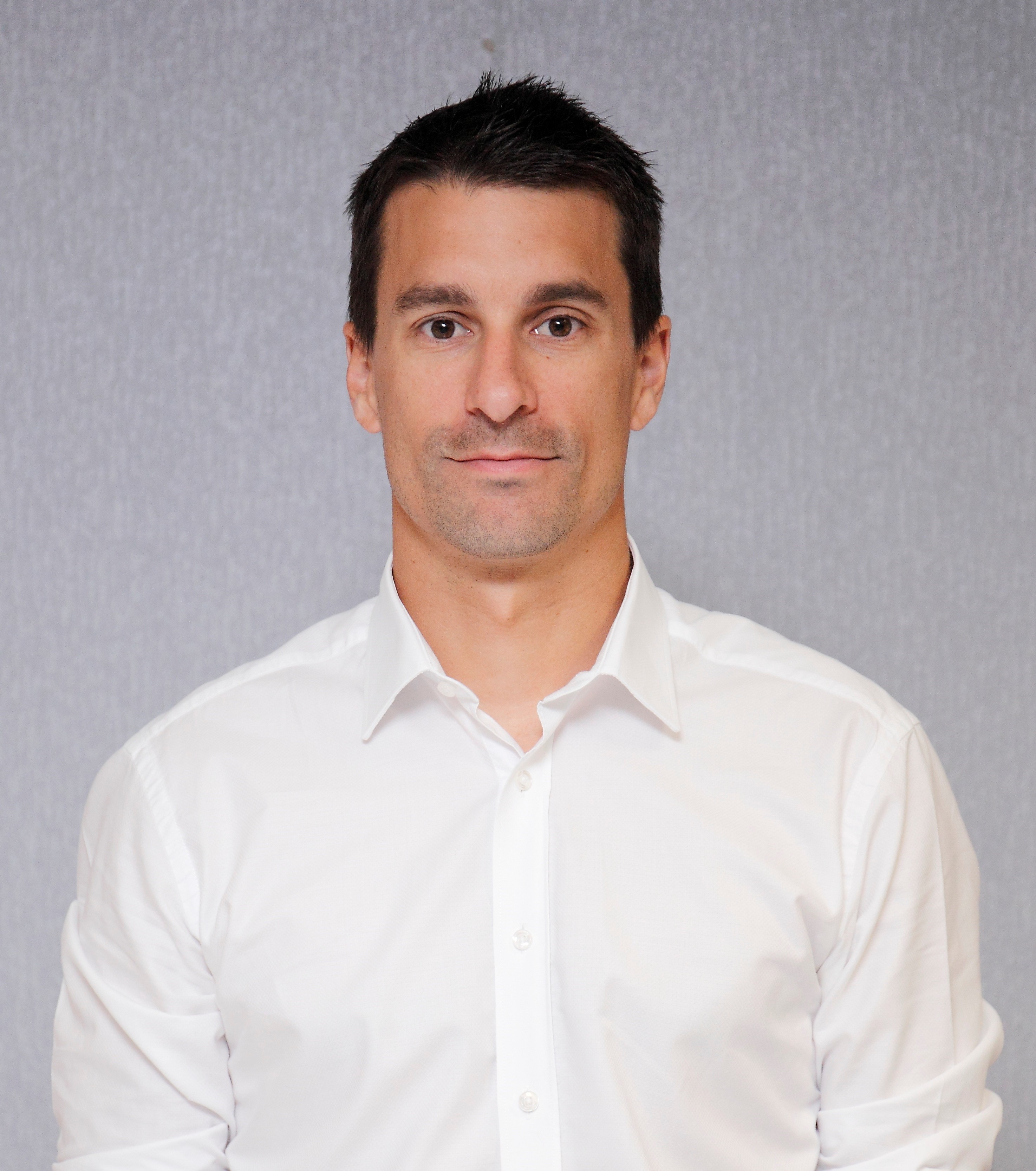
Julien D. Périard, FECSS, BSc, Bed, MA, PhD
Associate Professor, University of Canberra Research Institute for Sport and Exercise
Dr. Périard is an Associate Professor at the University of Canberra Research Institute for Sport and Exercise. He is also an Adjunct Senior Lecturer at the University of Sydney and former Research Scientist and Head of Research Operations for the Athlete Health and Performance Research Centre at Aspetar. His scientific expertise lies in the area of environmental physiology with his research examining the mechanisms that mediate health and performance in adverse environments (i.e. heat and altitude). He has worked with both amateur and professional athletes from various disciplines, along with National and International Federations (e.g. FFR, IAAF, ITF and UCI). He has authored over 65 research publications and book chapters, including a textbook on Heat Stress in Sport and Exercise that is scheduled to be released in 2019. He has presented at more than 60 international conferences, including 10 as a keynote presenter. Julien is an Associate Editor for Front Physiol and has served as Guest Editor for the Br J Sports Med and Scan J Sci Med Sport. His research has been recognised by the Canadian Society for Exercise Physiology, Exercise and Sports Science Australia, the Physiological Society, and the Society for Tennis Medicine and Science.

Alicia Pike Lacy, PhD, ATC
Postdoctoral Research Fellow, Arizona School of Health Sciences
A.T. Still University of Health Sciences
Alicia Lacy is currently a Postdoctoral Research Fellow on the practice-based research track within the Arizona School of Health Sciences at A.T. Still University. Prior to this position, she served multiple roles for the Korey Stringer Institute during her 6 years there, including the Assistant Director of Youth Sport Safety, Associate Director of Research, and Director of Education. Alicia’s area of research expertise is identifying effective educational interventions for clinicians that can improve knowledge, and more importantly, change clinical practice behaviors in a manner that improves the quality of patient care and subsequent patient outcomes. She has presented on her research numerous times at regional and national conferences and has 14 peer-reviewed articles published/currently in review. Additionally, Alicia serves as a reviewer for the Journal of Athletic Training, International Journal of Athletic Therapy & Training, and the Journal of Science and Medicine in Sport, and is a member of the NATA Foundation’s Educational Resources Committee. She has clinical experience at both the high school and collegiate club sport levels.
Alicia received her Bachelor’s degree in athletic training from High Point University in 2013, and her Master’s and Doctoral degrees in the Department of Kinesiology from the University of Connecticut in 2015 and 2019, respectively.
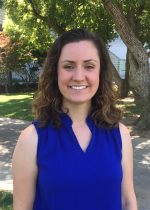
Riana R. Pryor, PhD, ATC
Assistant Professor, Exercise and Nutrition Sciences, Center for Research and Education in Special Environments, University at Buffalo
Riana Pryor is an Assistant Professor at the University at Buffalo in the Department of Exercise and Nutrition Sciences and teaches in the Athletic Training Program. She received her Bachelor’s degree in Exercise Physiology and Athletic Training from SUNY Brockport, her Master’s degree in Exercise and Sport Sciences from Ithaca College, and her Doctorate in Kinesiology from the University of Connecticut.
Riana is the Director of the Hydration, Exercise, and Thermoregulation (HEAT) Laboratory in the Center for Research and Education in Special Environments at the University at Buffalo. Her research determines the impact of extreme environments on worker and Warfighter health and safety. The focus is on creating work design solutions to mitigate thermal strain and prevent excessive hyperthermia and exertional heat illnesses.
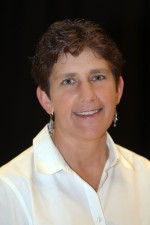 Margot Putukian, MD
Margot Putukian, MD
Director of Athletic Medicine, Head Team Physician, Princeton University
Associate Clinical Professor, Robert Wood Johnson University of Medicine and Dentistry of New Jersey
Past President American Medical Society for Sports Medicine
Chair, US Lacrosse Sports Science & Safety Committee
NFL, Head, Neck & Spine Committee
Margot Putukian is the Director of Athletic Medicine and Head Team Physician at Princeton University. She received her B.S. degree from Yale University, where she participated in soccer and lacrosse, and her M.D. from Boston University. Prior to her current position at Princeton, she worked at Penn State University as a team physician. Dr. Putukian is board certified in Internal Medicine and Sports Medicine.
Dr. Putukian is a past president of the American Medical Society for Sports Medicine (AMSSM), and is a Team Physician for US Soccer as well as for the US Men’s Lacrosse Team. Dr. Putukian has been an author and co-author on several articles, including the NATA & AMSSM Position Statements on Concussion, several Team Physician Consensus Statements and the two most recent Zurich International Concussion Conference documents. She is an editor of the Netter’s Sports Medicine textbook, and has also been active in research in concussion, as well as sport specific issues in soccer and lacrosse. She is on the NCAA Task Force on Concussion and the Task Force on Mental Health issues. Dr. Putukian chairs the Clinical Sports Medicine Leadership committee for the American College of Sports Medicine. She serves on the US Soccer Concussion Committee and is a member of the US Soccer Recognize to Recover campaign. She chairs the US Lacrosse Sport Science & Safety Committee and serves on the USA Football Medical Advisory Committee. Margot is a medical consultant to Major League Soccer and also currently serves on the NFL’s Head, Neck & Spine Committee.

Sébastien Racinais, MD
Head of Research, Aspetar
Sébastien Racinais obtained his PhD in 2004. Following research on the neural responses to fatigue and hyperthermia, he developed a research programme on the chronic adaptations to hot ambient conditions and their repercussions on sport performance for elite athletes. Prof Racinais has successfully guided over 20 professional and national teams in developing environmental training. Sébastien is also collaborating with international sports federations including UCI and World Athletics on consensus guidelines relating to exercising in hot ambient conditions. He has published more than 130 original research articles, with a citation index (H-index) of 44. His research is currently developing heat therapy for muscle rehabilitation.
Prof Racinais is head of Research at Aspetar. He leads the European Network in Sports Sciences (ENSS) in environmental physiology. He is also the Chair of the IOC Adverse Weather Impact expert working group for the Olympic Games Tokyo 2020; and a member of the Medical and Scientific Commission Games Group for the protection of athlete’s health for the Olympic Games Tokyo 2020.

Neha Raukar, MD, MS, FACEP
Director of Sports Medicine, Department of Emergency Medicine
Associate Professor of Emergency Medicine
The Warren Alpert Medical School of Brown University
Currently the Director of the Division of Sports Medicine in the Department of Emergency Medicine, she is dedicated to contributing to educating fellow physicians and the public as it relates to life-threatening diseases in athletes including sudden cardiac death, exertional heat illness, and head injury. She is also invested in research to improve outcomes in patients with these injuries. She is recognized nationally and internationally as an academician, teacher, researcher, and clinician. She frequently speaks to the media in an effort to educate the public on a wide range of emergency medicine and sports medicine topics.
Her clinical role extends beyond the emergency department and she created the Center for Sports Medicine, an outpatient clinic that serves the community and through which she sponsors state wide baseline ImPACT testing for all high school athletes as well as statewide educational programs for faculty and families for all levels of school. She was a member of the Institute of Medicine/National Academy of Science Committee on Sports Related Concussion in Youth.
As an emergency physician trained in sports medicine, she offers a unique skill set for athletes in the acute setting. Her sideline experiences include high school and collegiate athletics, the Pittsburgh Pirates, UCI BMX, the Winter Dew Tour, the Women’s US Golf Tour, mass participation events such as the Boston and New York Marathon and the Rock and Roll Half Marathon, The Pittsburgh Boxing Association, and the Special Olympics. She continues in her role at Brown as a team physician, volunteers as a team physician at Bay View Academy (an all girls school) and East Providence High School. As a result of her efforts, she has earned the Top Doc RI award in Rhode Island for sports medicine numerous times.
She has a special interest in leveraging technology anchored in educational theory to improve education for residents and peers. As a mentor, she blends inspiration with unique strategies to help others become successful—whether it’s in the emergency department, in academic medicine, on the sideline, or in other aspects of their lives.
The health of a community is improved by delivering the highest quality, patient-centered care in a setting of active innovation and education and using research to inform policy change.
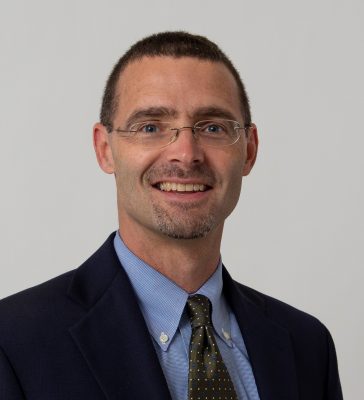
Peter F. Robinson, MD, FACC
Assistant Professor, Department of Medicine, University of Connecticut Health Sciences Center
Interventional Cardiologist, Division of Cardiology, University of Connecticut Health Sciences Center
Dr. Robinson has over 15 years of experience as a clinical and interventional cardiologist, including the acute care and treatment of individuals suffering from acute coronary syndromes and sudden cardiac death (SCD) with extensive experience with percutaneous coronary intervention (PCI), mechanical circulatory support, and cooling/targeted temperature management in the setting of SCD.
Dr. Robinson earned his medical degree from the University of Virginia in 1998. He completed internship and residency at the University of Colorado Health Sciences Center before serving as Chief Medical Resident followed by a fellowship in cardiovascular disease, also at the University of Colorado. He then stayed on to complete a fellowship in interventional cardiology before beginning his clinical career at Baystate Medical Center in Massachusetts where he started their structural heart program with the first closure of congenital heart defects at the institution in 2007 and held multiple leadership positions at the hospital and its associated Physician Hospital Organization, Baycare Health Partners.
He has a special interest in prevention and treatment of cardiac arrest in sport and is currently a Cardiology Consultant for UConn Athletics. He is heavily involved in medical student, residency, and fellowship training and education and has given invited lectures on preventative cardiology, treatment of sudden cardiac death, and ECG interpretation in athletes.

Michael Ryan, MS, ATC, PT
Head Athletic Trainer/Physical Therapist, Jacksonville Jaguars- Retired
Mike Ryan is a renowned sports medicine and physical rehabilitation expert. His diverse background includes the National Football League, 6 Ironman triathlon finishes, international lecturing, heat illness specialization and the US Olympic Training Center.
Mike, the Sports Medicine Analyst for NBC Sports and Sunday Night Football, is the former Jacksonville Jaguars’ Head Athletic Trainer/Physical therapist (1994 – 2014). Mike served as the Assistant Athletic Trainer/Physical Therapist for the New York Giants (1988 – 1994) for six seasons before becoming the youngest head athletic trainer in the NFL in 1994.
In addition to his role with Sunday Night Football, Mike is founder of Mike Ryan Sports Medicine, Inc. sharing his expertise on physical therapy, injury prevention, wellness and fitness to expand his Personal Mission Statement: To Enhance the Health of Others.
During his 26 years in the NFL, Mr. Ryan served as President of the Professional Football Athletic Trainers’ Society Research & Education Foundation (1999 – 2014), Chairman of the NFL Collegiate Athletic Trainers’ Committee and a member of the NFL Foot & Ankle Committee.
Mike is proud of his role as mentor for young sports medicine professionals. Three of his former NFL assistants have been employed as head athletic trainers in the NFL: Andre’ Tucker, Chicago Bears, Joe Sheehan, Cleveland Browns and John Burrell, Washington Redskins.
Mr. Ryan attended Central Connecticut State University, where he received a bachelor’s degree in athletic training in 1985. He also earned a bachelor’s degree in physical therapy from the University of Connecticut in 1988.
Mike, a life-long fitness enthusiast, continues to expand his athletic career with Spartan Races, triathlons and running races of any distance.

Samantha Scarneo-Miller, PhD, ATC
Assistant Professor & Program Director, Division of Athletic Training, School of Medicine, West Virginia University
Dr. Samantha Scarneo-Miller serves as an Assistant Professor and Program Director for the Master of Science in Athletic Training in the Division of Athletic Training, School of Medicine at West Virginia University. She works to improve overall safety for all athletes, and has most recently focused on the high school setting. Dr. Scarneo-Miller is a licensed athletic trainer and has experience at the high school level, youth sporting events and mass medical tents. Her research interests include policy implementation to improve sport safety, dissemination and implementation science, and public health frameworks with regards to sports medicine interventions. Dr. Scarneo-Miller is the principal or co-investigator of several grants and has spoken at various national meetings and state meetings such as the Eastern Athletic Trainers’ Association, National Athletic Trainers’ Association and American College Health Association. She has been a lead or co-author on several publications including a member of the writing team for the update of the NATA Position Statement on Emergency Planning in Athletics.
Dr. Scarneo-Miller received her bachelor’s degree in Athletic Training at the University of New Hampshire in 2011, and her master’s and doctoral degrees from the University of Connecticut in 2017. She and her partner, Jelan, live in Morgantown with their dog Milo.

Zachary Schlader, Ph.D.
Associate Professor, Department of Kinesiology, Indiana University-Bloomington
Zachary (Zac) Schlader, PhD, is an Associate Professor in the Department of Kinesiology at Indiana University-Bloomington (IUB). He came to IUB from the University at Buffalo, where he was an Assistant Professor in Exercise and Nutrition Sciences from 2014-2019. Zac completed his BS from Austin Peay State University (2006), his MS from IUB (2008) and his PhD from Massey University (New Zealand, 2011). He completed a postdoctoral fellowship at the Institute for Exercise and Environmental Medicine (Texas Health Presbyterian Hospital and UT Southwestern Medical Center). Zac’s research interests broadly involve understanding the implications of environmental stressors (e.g., heat, cold, altitude, depth) on integrative physiology. Current research foci include examining the impact of occupational heat stress and heatwaves on kidney health, and elucidating responses to diving related environmental exposures (e.g., alterations in blood gases, cold, contamination). These studies are carried out with relevance to at-risk populations (e.g., military, manual laborers, older adults, etc.).
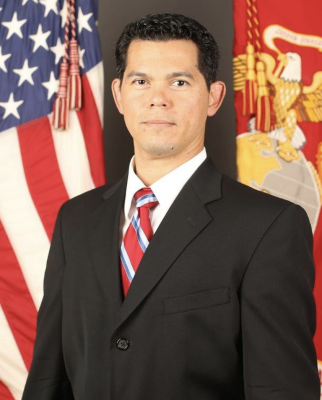
Jay Sedory, MEd, ATC, EMT-T
Certified Athletic Trainer, Tactical Medic, Conditioning Specialist, United States Marine Corps
Jay Sedory is a licensed athletic trainer for the United State Marine Corps at the Martial Arts and Fitness Center of Excellence in Quantico, Virginia. He is an athletic trainer with over 20 years and has over 15 years of experience in the military setting. He is also a trained Tactical Medic with over 13 years of emergency management experience within the military and civilian settings. Most notably, Mr. Sedory is a deployable asset for Health and Human Services under the Administration for Strategic Preparedness and Response (ASPR). Jay Sedory is a graduate and instructor for tactical medics under the premier federally recognized program: Counter Narcotics and Terrorism Operational Medical Support (CONTOMS). Mr. Sedory holds several certifications in strength and conditioning. Before his position with the Marine Corps, he served as the head athletic trainer for the Federal Bureau of Investigation and Drug Enforcement Administration. In this position, he implemented several injury prevention programs related to heat illness, concussion, musculoskeletal injuries, and sports preparedness.
He is also an accomplished professional in athletic training on the national, district, and state levels. Mr. Sedory has served as the Mid-Atlantic Athletic Trainers’ Association Treasurer and Mr. Sedory is a former President of the Virginia Athletic Trainers’ Association.

Robert Sefcik LAT, ATC
Executive Director, Jackson Sports Medicine Program
Bob Sefcik is a passionate advocate of sports safety and an outspoken sponsor for certified athletic trainers, especially within the high school setting. He is active locally, regionally, state-wide and nationally promoting student-athlete safety. Sefcik has hosted multiple state-wide sports safety meetings in Florida and has worked together with multiple organizations to increase collaboration on safety issues which reduce sports injuries and death in Florida. Sefcik has held various roles as an athletic trainer in his 27 years in the profession, including: High school (teacher/AT), professional sports, hospital/clinical, physician extender and administrator. He has been responsible for creating many new full-time positions for certified athletic trainers in each of his professional roles. Most recently, as the Executive Director of the Jacksonville Sports Medicine Program, Sefcik and close colleagues lobbied the Jacksonville Jaguars, the NFL and many local agencies to create a unique community collaborative that has created 18 full-time positions for certified athletic trainers within the Duval County Public Schools and serve more than 16,000 student-athletes. Sefcik credits his relationship with Doug Casa and the support provided by KSI staff as a motivational force for his accomplishments in Florida.
Sefcik has been recognized by Athletic Trainers Association of Florida as the clinical athletic trainer of the year, has received the Award of Equity from the Duval County Schools and the Innovations in Education Award by Jacksonville University. He has received recognition within the Jacksonville Business Journal, the Florida Times Union and local television and radio spots for efforts promoting sports safety.
He is most proud of his role as loving husband to Jill and father to their three daughters, Madeline, Frankie and Charlotte and son, Morgan.
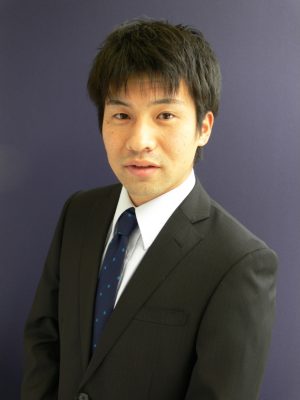 Yasuki Sekiguchi, PhD, CSCS
Yasuki Sekiguchi, PhD, CSCS
Assistant Professor, Department of Kinesiology and Sports Management, Texas Tech University
Yasuki Sekiguchi received PhD at the University of Connecticut, master’s degree at the University of Arkansas, and bachelor’s degree at the Kobe University in Exercise Science. His expertise is hydration and thermoregulatory strategies to optimize performance, athlete monitoring, and athlete performance and recovery. He has done a lot of research in these areas and publish research manuscripts. Also, he has been working with different athletes from youth to professional levels as a sport scientist as well a strength and conditioning coach. He is certified strength and conditioning specialist from national strength and conditioning association.

Stephanie M. Singe, PhD, ATC, FNATA
Associate Professor, Department of Kinesiology, University of Connecticut
Stephanie Singe is an assistant professor and director of the professional bachelors athletic training program at the University of Connecticut; a position she has held for over ten years. Her research interests include the prevention of sudden death in sport, particularly as it relates to implementation of best practices and educational techniques used to instruct health care professionals, coaches, parents, and other medical professionals. Pressures to return athletes back to play following injury is an area that her work will extend over the next few years. She has expertise in the area of survey methods and qualitative methodologies. Her recent work with KSI has focused on athletic training services within the secondary school setting and how to overcome the barriers to hiring athletic trainers within the setting. Two of her publications in the Journal of Athletic Training, related to exertional heat stroke and evidence based practice, were awarded second runner up for the 2011 Clint Thompson Award for Clinical Advancement.
She received her bachelor’s degree in athletic training at the University of Connecticut in 2000, her master’s degree in Athletic Training at Old Dominion University in 2002 and graduated from the Neag School of Education at the University of Connecticut in 2005 with her doctorate in sport management.
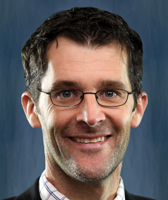
Michael Seth Smith MD, CAQ-SM, PharmD
Assistant Professor, Division of Sports Medicine, Department of Orthopaedics and Rehabilitation, University of Florida
Dr. Seth Smith is currently an assistant professor in the Division of Sports Medicine at the University of Florida Department of Orthopaedics and Rehabilitation with a courtesy appointment in the Department of Community Health and Family Medicine. He obtained his pharmacy degree from the University of Florida College of Pharmacy and medical degree from the Florida State University College of Medicine. He completed his residency training in Family Medicine at the University of Florida and completed a Primary Care Sports Medicine fellowship at the University of Florida.
He is currently the head team physician for the Santa Fe College athletic program and Co-Medical director for the University of Florida Department of Orthopedics High School and Adolescent Outreach Program that oversees 18 high school sports programs and numerous adolescent and youth sports programs.
His clinical and research interests include exertional heat related illness, sports related concussions, youth overuse injuries, sports pharmacology, and musculoskeletal ultrasound.
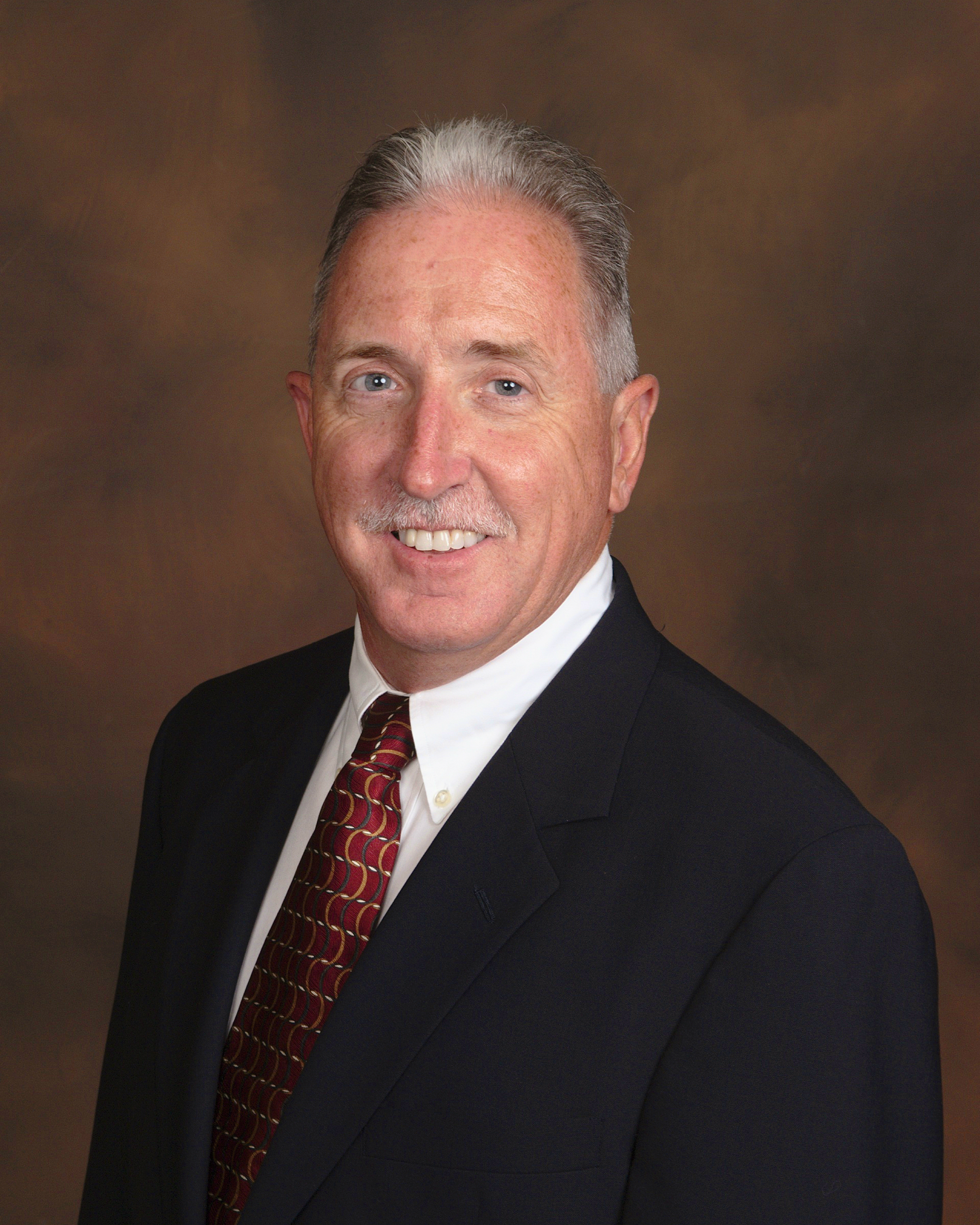
Paul Sparling, MEd, AT, ATC
Head Athletic Trainer, Cincinnati Bengals
Paul Sparling has been the Cincinnati Bengals Head Athletic Trainer since 1992, replacing the Bengals original Athletic Trainer, Marv Pollins upon his retirement the same year. Paul started initially with the team as a student athletic trainer intern beginning in 1978 and then was elevated to Assistant Athletic Trainer in 1982. He is currently one of the longest tenured Head Athletic Trainers in the NFL and is entering his 37th season in the NFL.
Paul graduated from Wilmington College of Ohio in 1981 with a bachelor’s degree in Health Education, Industrial Education, and emphasis in Athletic Training. He earned his master’s degree in Health Administration from the University of Cincinnati in 1991. He has been inducted into the Wilmington College Athletic Hall of Fame.
He has been nominated to the Ohio Athletic Trainers Hall of Fame and is a frequent public speaker on sports medicine related topics around the country. He takes great pride in the Athletic Training Internship Program he oversees with the club which has seen over 80 students go on to become Athletic Trainers, Physical Therapists, Chiropractic Physicians, Medical Doctors, and even a Surgeon.
Paul speaks fondly of his time with the Bengals club and praises the team’s ownership for ensuring from day one that all medical care is consistently focused on “doing what is right, not only for today but also for the long-term benefit for each player”. One such example is that that the team started doing Neurological Baselines on all players nearly 10 years before it was mandated by the league.
 Barry Spiering, PhD
Barry Spiering, PhD
Lead Physiologist, New Balance Sports Research Lab
Barry A. Spiering, Ph.D., has diverse experiences in sports & exercise science, while serving populations ranging from Olympic & professional athletes to soldiers & astronauts. Dr. Spiering is currently the Lead Physiologist in the New Balance Sports Research Lab. Prior to joining New Balance, Dr. Spiering held positions at the U.S. Army Research Institute of Environmental Medicine (USARIEM), the Nike Sport Research Lab, California State University – Fullerton, and NASA – Johnson Space Center. Additional professional experiences include serving as a Sports Physiologist at the U.S. Olympic Training Center, managing the Human Performance Laboratory at Marywood University, and interning with the New Orleans Saints strength & conditioning staff. Ultimately, these experiences have led to numerous peer-reviewed scientific publications, as well as presentations at regional, national, and international meetings.

Erik Swartz, PhD, ATC, FNATA
Professor and Chair, Department of Physical Therapy and Kinesiology
UMass Lowell
Dr. Swartz received his PhD in Applied Biomechanics at the University of Toledo. Dr. Swartz’ primary research interest involves studying the acute management of athletes with a cervical spine injury. Dr. Swartz was selected to chair the writing group for the NATA Position Statement on the Acute Management of the Cervical Spine Injured Athlete. Dr. Swartz has received grant awards from The NATA Foundation, the National Football League, and the National Operating Committee for Standards in Athletic Equipment. He has been published in multiple journals including Spine, New England Journal of Medicine, Prehospital Emergency Care, Journal of Athletic Training, The American Journal of Sports Medicine, and Clinical Journal of Sport Medicine. He has presented his research on state, regional and national levels. He serves on the NFL Head Neck and Spine Committee’s Subcommittee on Safety Equipment and Rules and on the NATA Conference Programming Committee. He is on the Editorial Boards of the Journal of Athletic Training and Athletic Training and Sports Health Care Journal.
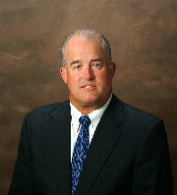
James L. Thornton, ATC
Head Athletic Trainer, Clarion University Athletics
Jim embraced his Pennsylvania State Athletic Conference (PSAC) collaborations and became one of the nationally recognized experts in health care for wrestlers. When chairing the NCAA Athletic Trainer Task Force from 1997-2006 and then later serving as the Athletic Training Liaison to the NCAA Wrestling Rules Committee, Jim contributed to the creation of health and safety rules related to safe weight management practices, and the prevention and treatment of common skin infections. He also helped to create several health and safety publications, instructional videos, and practice standards that have been distributed and shared widely by USA Wrestling. In addition to sharing his over thirty years of clinical expertise with health issues in wrestling, Mr. Thornton recently co-authored four different peer-reviewed publications on liability in sports medicine and the role of athletic trainers. Jim’s clinical expertise and contributions at the collegiate level were recognized in 2008 when he received the NATA College and University Committee’s Division II Head Athletic Trainer of the Year recognition.
For many, these achievements would have been a pinnacle of their successes; however, that was not the case for Mr. Thornton. These achievement only served to fuel Jim’s desire to give back to the profession of Athletic Training even further, culminating in his election as President of the National Athletic Trainers’ Association. During Jim’s leadership as NATA President from 2012-2015, the NATA marked a time of unrivaled progress and recognition of Athletic Training in the ever-expanding and competitive health care arena. He was well respected and admired by his colleagues, his peers, administrators of other national organizations, and legislators. Jim Thornton has made a difference for Athletic Trainers in Pennsylvania, across the United States and on an international level. Through all that he has given back to the profession, and how he has represented all of his colleagues and friends in Pennsylvania and District Two so admirably, James L. Thornton is recognized as many things to many different people – leader, teacher, outstanding clinician, and visionary, but most importantly as loving husband of Bridget Gates Thornton, who is also an Athletic Trainer, and their three daughters, Matti, Maci and Maya. Athletic Trainers in Pennsylvania and across the United States have benefitted greatly from the unselfish contributions that Jim Thornton has made to the advancement of the profession.

Chris Troyanos, ATC
Medical Coordinator, Boston Marathon
Executive Director, International Institute for Race Medicine
Founder and President of Sports Medicine Consultants, (1980) Chris Troyanos is a successful entrepreneur who has served as the Medical Director and Coordinator for a number of athletic events. As the Medical Coordinator to the Boston Athletic Association, he is the architect for the medical coverage provided at the Boston Marathon.
He has over 30 years of experience when it comes to the medical care and public safety for several endurance events. He is a sought-after lecturer on the subject of health care for large-scale athletic events, and has extensive experience working with local, state and federal agencies as it relates to mass casualty concerns for major marathons.
Chris has an excellent record of accomplishment when providing road race medicine as a result of his many years as the Medical Coordinator of the Boston Marathon. From 1977 to 1995, he volunteered as the coordinator of athletic training services with the Boston Athletic Association. Since 1996, he has taken on a leadership role organizing a medical committee of over 50 medical professionals and another 1600 on-site medical volunteers.
He has been the primary liaison to the various cities and towns supporting the race. His partnerships and relationship building skills have created strong ties with the Department of Public Health, the Massachusetts Emergency Management Agency and ten participating hospitals. His ability to bring people together and forge relationships has truly allowed many competing agencies to act as one during this historic marathon.
In addition to his organizational skills, Chris has established vital partnerships with a number of key corporate supporters by partnering with Philips HealthCare, Covdien, Abbot Labs and Nova BioMedical. His efforts have allowed the Boston Marathon to enjoy the largest level of medical sponsorship and “gift in kind” support in the country.
Chris has also taken on the role of Executive Director for the International Institute for Race Medicine. He leads an international group of medical directors that are working to improve the safety for all road race participants.

Lesley Vandermark, PhD, LAT, ATC, PES
Clinical Assistant Professor, Department of Exercise and Nutrition Sciences, SUNY University at Buffalo
After achieving a Bachelor of Science in Athletic Training from California University of Pennsylvania, Lesley went to the University of Connecticut for a Master of Science in Exercise Science, and Doctorate of Philosophy in Kinesiology. During that time, she worked closely with the Korey Stringer Institute on outreach and research initiatives. Lesley also previously taught at the University of Arkansas in athletic training and exercise science programs at both undergraduate and graduate levels.

Jennifer Vanos, PhD
Assistant Professor, School of Sustainability, Arizona State University
Dr. Jennifer Vanos holds an interdisciplinary appointment studying climate and human health in the School of Sustainability at Arizona State University. As a human biometeorologist, she works to strengthen the understanding and practice surrounding how we protect people from extreme heat and air pollution in a world impacted by climate change. Her work on extreme heat addresses risks and challenges within varying vulnerable populations, including children, athletes, and outdoor workers. She approaches her work using various measurement and modeling tools and frameworks across spatiotemporal scales. Dr. Vanos has published over 65 peer-reviewed articles in scientific journals on topics ranging from human thermal comfort, urban design, exertional heat illness and energy balance modeling, the Tokyo Olympics, and air pollution epidemiology. She is a member of ASU’s Urban Climate Research Center and is the Chair of the American Meteorological Society’s Board on Environment & Health. She previously worked at UC San Diego, Texas Tech, and Health Canada. She received her Ph.D. and bachelor’s degrees from the University of Guelph in Canada.
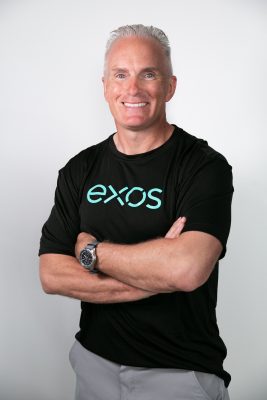
Mark Verstegen, MS, CSCS
Founder, EXOS
One of the world’s foremost experts on performance, Mark is the founder and president of Exos. In his role he focuses on elevating performance globally, overseeing the continual Exos evolution to raise up all of the company’s clients. He’s a global keynote speaker and the author of six books and numerous research articles. His 30 years of experience includes being the founder and president of IMG Academy’s International Performance Institute and serving as a performance and nutrition coach for Washington State University, University of Idaho, and Georgia Tech. Mark has also served as the performance director of the NFL Players Association for 22 years.

Lisa Walker, ATC
Athletic Trainer, Springville High School
Lisa Walker, a native of Orange County, Calif., began her athletic training career in 1993 when she graduated from Brigham Young University in Provo, Utah. She has worked as the head athletic trainer at Springville (Utah) High School ever since. Lisa has held numerous positions within the Utah Athletic Trainers’ Association, the Rocky Mountain Athletic Trainers’ Association, and the National Athletic Trainers Association. She has provided service with the Red Cross of America, the Australia Down Under Bowl (American football) in 2000 and the 2002 Winter Olympics in Salt Lake City, as well as other local events and organizations. Lisa was the secretary/treasurer of the Utah Athletic Trainers’ Association from 1998-2002, president of the UATA from 2002-2007, president of the Rocky Mountain Athletic Trainer’s Association from 2007-2012, and she continues to serve on the UATA board of directors, the Sports Medicine Advisory Council of the Utah High School Activities Association, the NATA Secondary Schools Committee and Honors and Awards Committee, and the Strategic Planning Committee to prevent sudden death in secondary school athletes. During her time with the UATA, she helped produce “Advocates of the Student Athlete,” an NATA award-winning video in 2000. She was instrumental in passing a law mandating licensure for all athletic trainers in the state of Utah and helped champion concussion legislation. She helped athletic trainers gain recognition as official healthcare providers, passed mandatory heat acclimatization for all athletes, pre-participation exams and concussion policies with the Utah High School Activities Association, as well as mandatory CPR and first aid certification for all Utah coaches and a thorough weight management system for all high school wrestlers. Lisa was named to the RMATA Hall of Fame in 2014, the public advocacy award winner by the Board of Certification in 2013, NATA Athletic Trainer Service Award in 2013, NATA Governmental Affairs award in 2006 and several other honors within the UATA, RMATA and other local organizations. Lisa resides in Provo, Utah, where she continues her work as a high school teacher and athletic trainer and serves as a clinical instructor for athletic training students at Brigham Young University while championing for athletic training reform with the Utah state legislature. Lisa continues to promote safety for the physically active of all ages. Her and her husband, David, are the parents of three children.
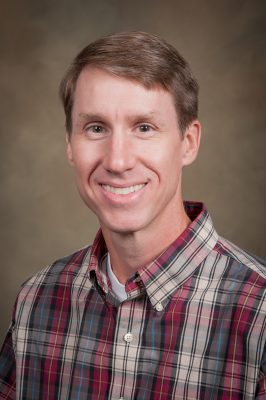
Jonathan E. Wingo, PhD, FACSM
Professor and Chair, University of Alabama
Jonathan Wingo earned his BS in Exercise Science from Berry College in 1999, his MA in Exercise and Sport Science from UNC-Chapel Hill in 2002, and his PhD in Exercise Science from the University of Georgia in 2006. He then completed a postdoctoral fellowship in integrative physiology while jointly appointed at the Institute for Exercise and Environmental Medicine and the University of Texas Southwestern Medical Center in Dallas, Texas. He became a Fellow of the American College of Sports Medicine (ACSM) and an ACSM Certified Exercise Physiologist in 2013. Dr. Wingo is currently a Professor and Head of the Department of Kinesiology at the University of Alabama. His research focuses on human cardiovascular and thermoregulatory physiology in response to heat stress and exercise.
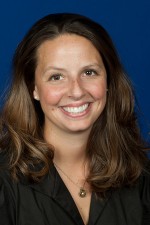
Susan Yeargin, PhD, ATC
Associate Professor, University of South Carolina
Susan Yeargin is an assistant professor of Athletic Training. She serves on NATA’s Pronouncement’s Committee. She was a task force member and author of the Pre-Season Heat-Acclimatization Guidelines for Secondary School Athletics and the NATA Position Statement on Exertional Heat Illnesses. She has over 10 years of experience conducting research, 25 peer-reviewed publications in the content area, and over 30 professional presentations at the local, national, and international level on thermoregulation and hydration behaviors. Her area of expertise is in thermoregulation and hydration behaviors in active populations. Past studies include hydration status measurements, hydration behaviors of children and adolescents, heat acclimatization of youth, pre-cooling ergogenic aids, cooling for heat illness treatment, core body temperature validity, and thermoregulation in exercising individuals. She has clinical experience with national cross country and marathon competitions as well as Division I collegiate sports. She has been a professor for nine years teaching both undergraduate and graduate Athletic Training courses such as Medical Emergencies in Sport and Orthopedic Evaluation.
Dr. Yeargin received her bachelor’s degree from James Madison University in 2001, and in 2003 she earned her master’s degree in exercise and sport science from the University of Florida. She continued her education at the University of Connecticut and graduated with her doctorate in 2007.
